Accelerating to the international stage with the support of accelerators
Estonian defence technology startup Wayren is making strides in secure communication solutions. The company, which raised €725,000 in its first funding round last year, has also received support from the European Defence Fund and the Estonian Ministry of Defence. However, beyond financial backing, Wayren’s journey has been shaped by various accelerators that have helped refine its technology and business model. How have these programs influenced their growth, and where is the company headed next? We spoke with Wayren’s co-founder and CEO, Henry Härm, to find out.
Wayren essentially started from the Estonian Defence Forces. What was the trigger to launch a startup?
“We worked together with the co-founders in the Cyber Command of the Estonian Defence Forces, developing a battle management system, and we saw that making quick decisions and improving systems were hindered by the reliability of communication. We wanted to digitalize the battlefield, so that’s how Wayren got started. Our first funding came from the Ministry of Defence’s defence industry support fund, which confirmed to us that this solution was necessary and already believed in from the early stages.”
Receiving funding from Prototron is an important milestone for many startups, as it provides not only financial support but also increased visibility. What were the most valuable resources Prototron provided for you?
“From Prototron, we received €20,000 in funding, which allowed us to assemble our first physical product kit and send it to customers for testing. After Prototron, we sent our product to Ukraine for testing to get feedback directly from the battlefield.”
After Prototron, you moved on to the Tehnopol Startup Incubator. How did the Startup Incubator impact the development of your platform?
“The incubator primarily provided general support for developing our startup through training, and having a key mentor was also crucial. Our key mentor was Pirko Konsa. During that period, we had to put in a lot of effort ourselves and develop our skills to overcome key milestones with the company. The incubator served as a support structure that helped us reach our goals. We also benefited from Tehnopol’s international network of professionals to further develop our business model.”
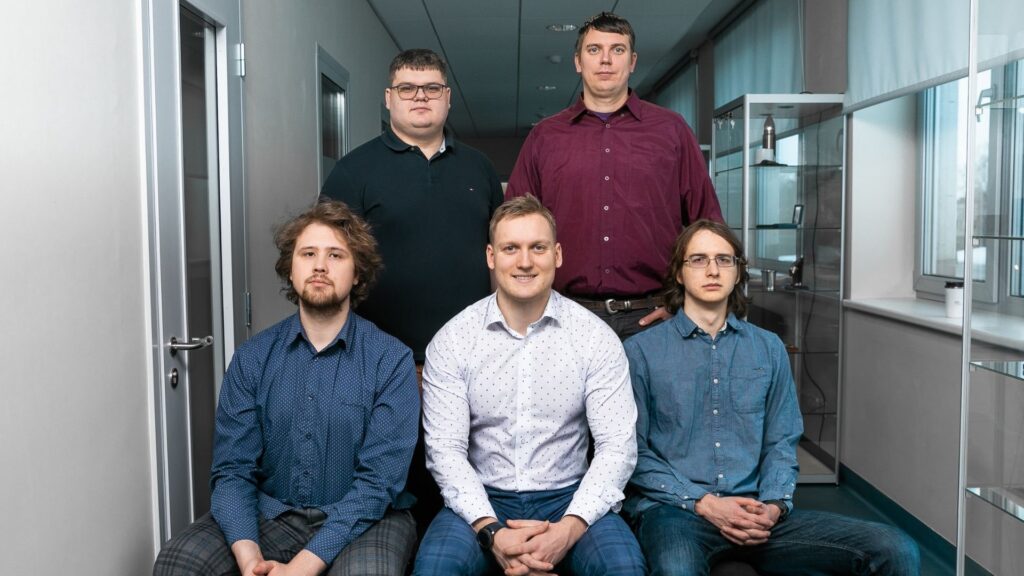
Wayren was one of the companies selected for the second cohort of the NATO DIANA accelerator in Estonia at the end of last year. There were about 2,500 applications from across the alliance. What are your expectations for this program?
“From NATO DIANA, we primarily expect testing opportunities and networking with potential partners and end-users. We hope that participating in this accelerator will serve as a mark of trust and quality, help establish Wayren in the defence industry, and connect us with potential partners.”
You also applied to NATO DIANA last year but were not selected at that time.
“Yes, we had very little time to submit the application, and we were not satisfied with the final version of our submission. This year, we took it seriously, allocated enough time, and prepared a very strong application. For this program, the preparation process is extremely important—it requires companies to think through what they want to achieve and how it aligns with the accelerator’s challenges. This groundwork is crucial.”
Looking back at your journey so far, where do you think Wayren would be now if you hadn’t had the opportunity to participate in different accelerators?
“I believe that various funds and accelerators have accelerated our growth—some learning moments have been easier to go through with the support of accelerators, as mentors and trainers have shared so much of their experience and advice with us. I personally feel that thanks to this support, our company’s development has been a few years faster and possibly also more professional.”
What are Wayren’s short-term goals? How do you plan to further develop your platform to meet both defence and civilian sector needs?
“Our main plan is to offer our technology in the defence industry to both Estonia and our allies. Right now, our focus among allies is on Ukraine. Once that part is covered, our next major step will be to start marketing our technology in the civilian sector. Our initial focus in the civilian sector is on mining—besides projects in Estonia, we want to work on mining digitalization projects abroad in the future. We believe this could be a strong additional growth platform alongside the defence sector. Additionally, we are planning another funding round within the next year.”
And finally—who will be the next Estonian unicorn?
“We will be!”
If your startup is ready to join an accelerator, act now—Tehnopol Startup Incubator is currently accepting applications! More details and application HERE!
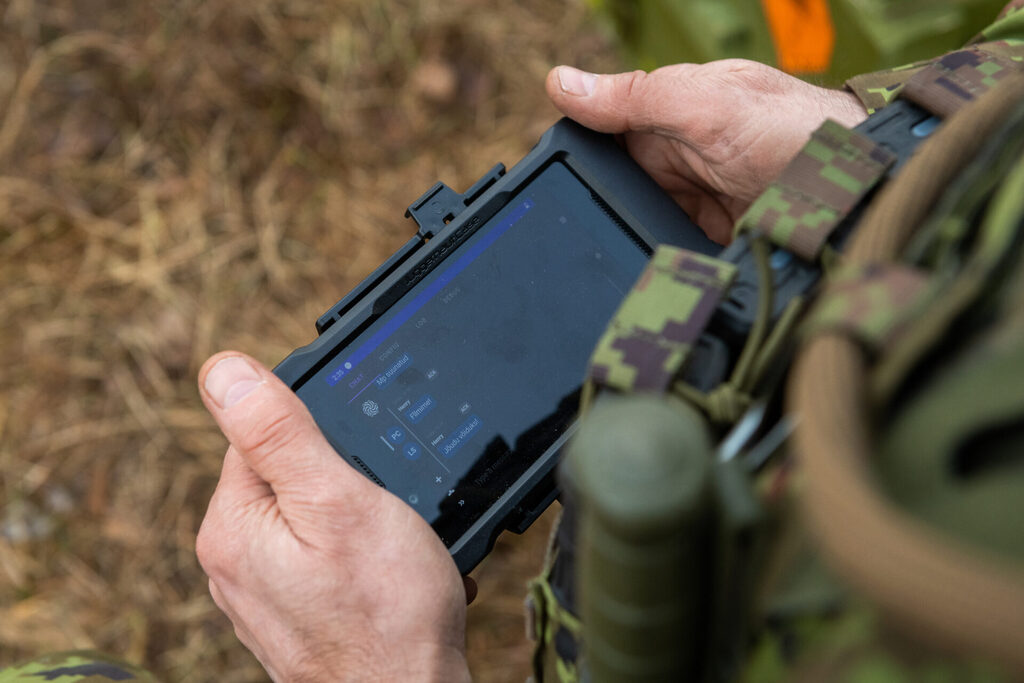
sTARTUp Day is turning 10 next year, and now is the perfect time to grab your super early-bird ticket at the best price! Join us inTartu on January 28–30, 2026, for an unforgettable anniversary edition filled with inspiring speakers, game-changing networking, and next-level opportunities. Get your ticket today and be part of the celebration!
This interview was originally published in sTARTUp Day blog.
Meet Tehnopol at sTARTUp Day: our guide for the event
This week, business festival sTARTUp Day takes place in Tartu, which is always one of the highlights of the year for startups. Tehnopol Science and Business Park will be at the demo area, we have invested our time and energy into several (side) events and the startups of Tehnpol Startup Incubator will take the stage.
If you have a startup and would like to pitch your idea on the sTARTUp Day stage perhaps next year, apply to the Startup Accelerator. We are currently accepting applications from early-stage tech startups. Not sure if you are ready for an Accelerator? Let us help you decide:
🔍 You have validated your idea. Don’t guess—make sure the problem you’re trying to solve actually exists for real users and someone needs it. Talk to potential customers about your idea and find out whether they’d be willing to pay for it.
💪 You have a dream team. If you don’t have a team yet, start building one! Look for potential team members at events and within your network—collaboration brings the best results. By the way, strong teams are also one important factor that the investors look for.
📑 Your paperwork is in order. Start with a private limited company and make sure everything is properly documented. Make agreements within the team on how the company’s ownership will be divided.
🛠️ You have built your MVP. Develop a Minimum Viable Product (MVP) to test the market demand. It’s better to move fast than to aim for perfection—everything doesn’t have to be flawless, but is must be functional.
🎯 You have set goals and are staying focused. Create an action plan and identify the goals you want to achieve. Working towards a shared objective helps to avoid distractions and keeps you focused on what really matters.
🚀 You should apply to the Accelerator! If you have all these points covered, you are more than ready to join the Accelerator! Read more here.
Where to find us at sTARTUp Day
If you want to discuss your ideas with us before sending your application, feel free to find us in Tartu. Here are some hints as to where we’ll be.
We kick off the week in Tartu on January 29 with Zebra ScaleUp Bootcamp Pitching. This is a closed event, only companies that are participating in Zebra ScaleUp project are expected.
The same day, all health tech enthusiasts are welcome at Gutenberg Club to take part in “Entrepreneurs meet researchers—matchmaking for R&D collaboration in health technologies”. If you are interested, see more information and register here.
On January 30 at 15:50, we will gather at the Pitching Stage where Tehnopol Demo Day takes place and our hard-working startups take the stage to pitch their ideas. Come join us and find out what the startups are up to. On the stage: Eetos (Startup Accelerator), Wayren (NATO DIANA Accelerator), GaltTec (NATO DIANA Accelerator), Kindel.AI (Startup Accelerator), GaasAI (Startup Accelerator), TeleArmy (NATO DIANA Accelerator), TraynMe (Startup Accelerator), VisioTag (Film and Multimedia Accelerator), Bebo (Startup Accelerator).
On January 30, Wayren will talk about their experience with different funds and accelerator programs at Starlight Stage. They have received funding from Prototron, attended the Startup Accelerator and last year, Wayren was one of the startups selected from thousands of applicants to the NATO DIANA Estonian Accelerator. So, find “Accelerate or Stagnate: The Role of Growth Programs in Startup Success” from the program and come listen with us.
In addition, here are some additional recommendations:
- January 30 11:00 Prorotron x Swedbank: The Insider’s Guide to Secure Your First Funding (Seminar Room 3)
- January 30 14:45 Prototron Open Mic (Pitching Stage)
Last, but not least—come by our booth at the demo area. You can find out more about our accelerator programs, projects, services for scaleups and simply have a chat with us. And since we still have your attention here, we can reveal a little secret about our booth: You can take photos enhanced by AI as a keepsake from sTARTUp Day 2025!
The Estonian NATO DIANA accelerator got off to a stylish start with a well-attended opening event at Tehnopol
Teams from the second cohort of the Estonian NATO DIANA accelerator came to Estonia for their first time last week. The two busy days in a forest camp were followed by workshops in Tallinn and meetings with the local testing centres. The highpoint of the day was the evening opening event, which was attended by the media, expert mentors, investors, the government and the armed forces, and other groups involved in national defence.
Opening speeches were given by Sigrid Rajalo, Director of the Innovation and Technology Department at the Ministry of Economic Affairs of Estonia, and by Mayor of Tallinn Jevgeni Ossinovski.
“The private sector is the driving force for ground-breaking innovation in defence, and DIANA is the key to bridging the gap between the private sector and the military structures of the NATO alliance”, said Estonian Minister of Defence Hanno Pevkur in a video address.
The NATO DIANA accelerator in Estonia is led by a consortium of the Tehnopol Startup Incubator working together with Sparkup Tartu Science Park, and both Anne-Liisa Elbrecht, the Head of the Tehnopol Startup Incubator, and Pirko Konsa, a member of the Sparkup Tartu Science Park board, spoke of the power of cooperation that the Estonian accelerator can harness as a partner.
NATO DIANA Regional Director Kadri Tammai and Project Manager at the Challenge Team of DIANA Nourhan Ibrahim spoke about this year’s challenges and how the programme can affect the whole of the alliance. There were 2613 companies that applied to the accelerator for 2025, of which 74 were accepted, and seven of the successful applicants have come to the accelerator in Estonia.
The seven superstars for 2025 are Scaleout, Factiverse, ResQuant, IS-Wireless, Microamp, Telearmy and Wayren, and they each gave an exciting three-minute pitch for their dual-use technologies, which demonstrated their potential by creating great interest in the subsequent networking discussions over a glass of bubbly.
The presentation by CTO of Revobeam Łukasz Kulas was particularly special because it shared some experience of the process, as Revobeam was part of the first cohort in the NATO DIANA Estonian accelerator and has moved on to the second phase of the programme.
The official part of the evening ended with a discussion of funding, needs, and testing in the defence sector by a panel comprised of CEO of Frankenburg Technologies Kusti Salm, CEO of SmartCap Sille Pettai, and Special Advisor for Defence Industry Development at the Ministry of Defence of Estonia Indrek Sirp. The discussion was chaired by Liisu Lass.
The teams will meet again in February at a defence industry meeting in Poland that will be attended by all the teams in the NATO DIANA accelerator in 2025 from across the whole alliance. In the time between the meetings in person, the teams will have to attend virtual sessions and participate in regular meetings with their dedicated mentors.
The full gallery from the opening event can be found here.
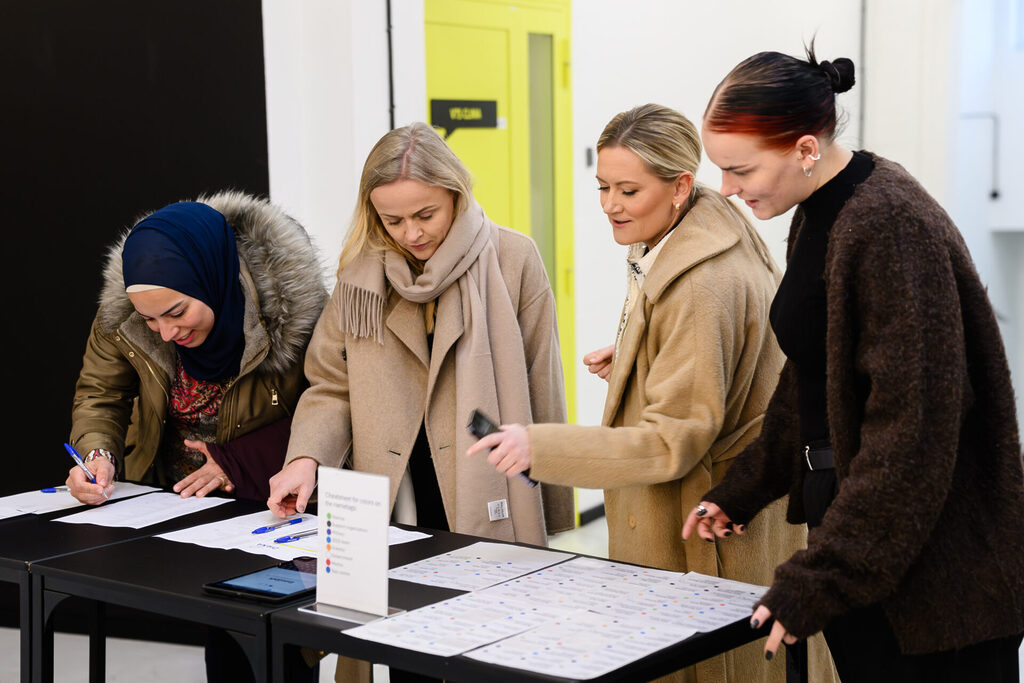
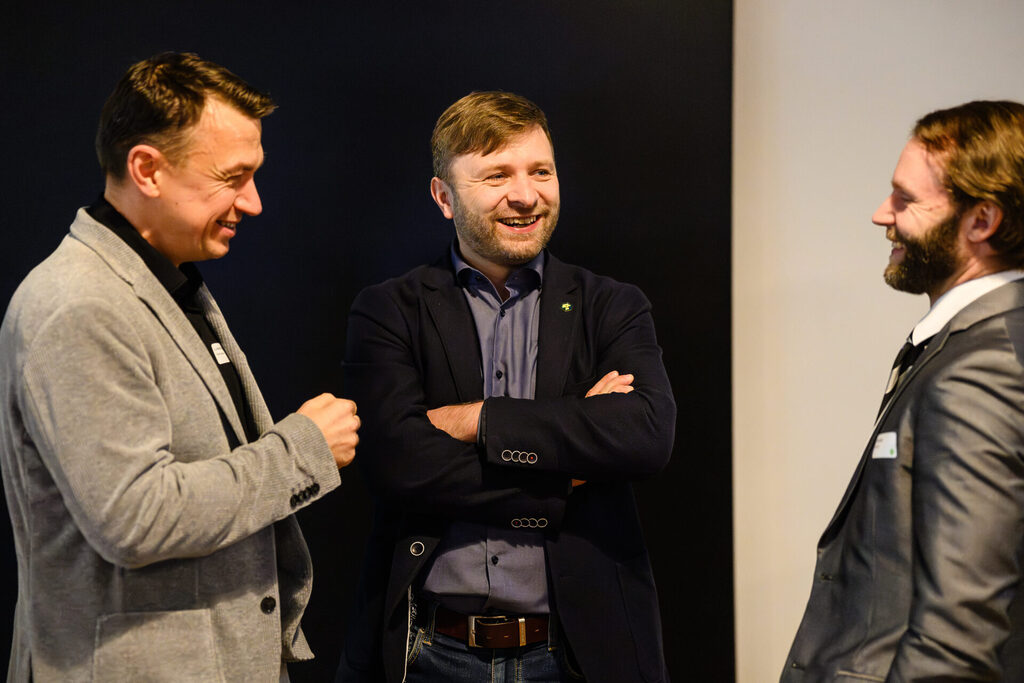
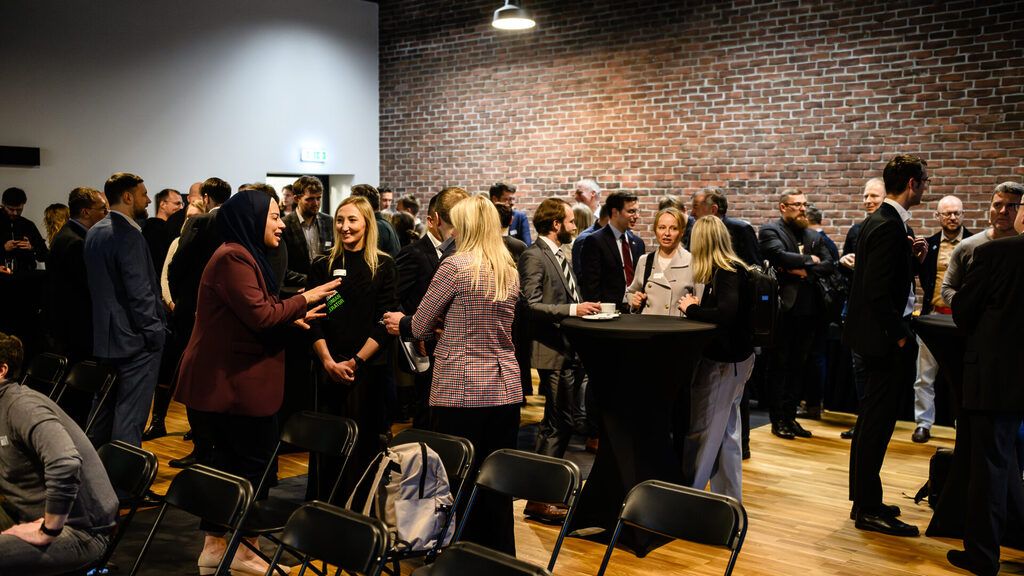
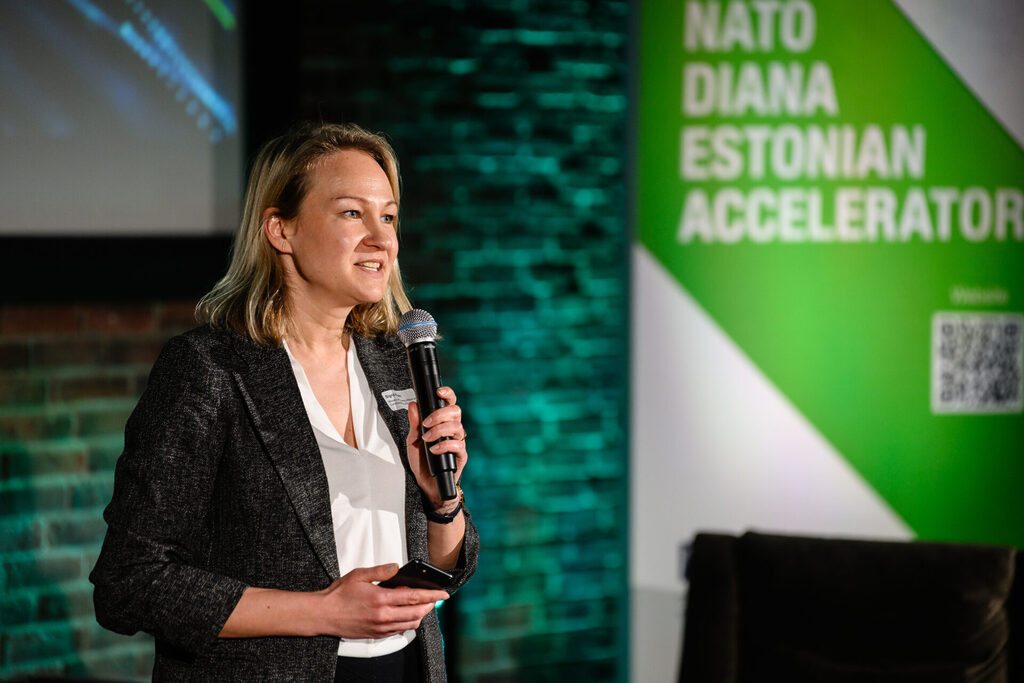
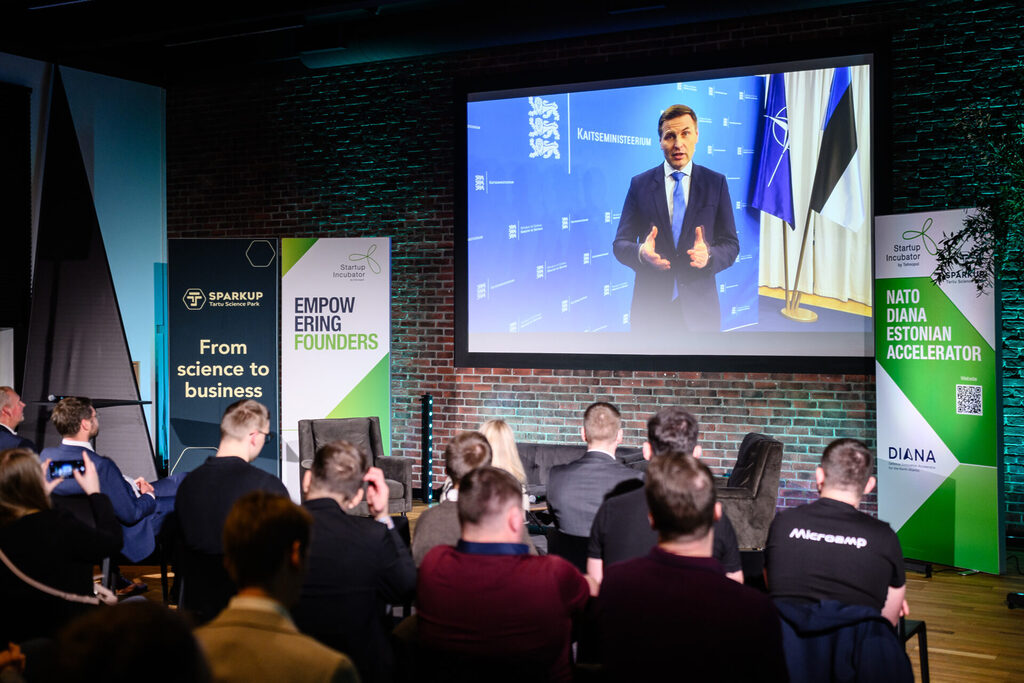
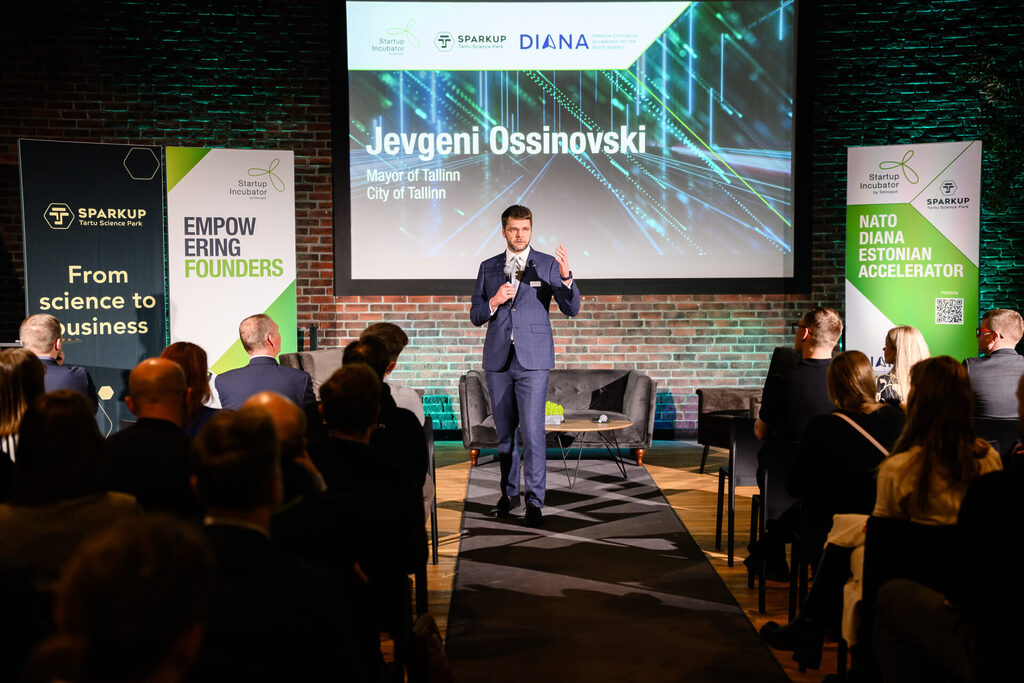
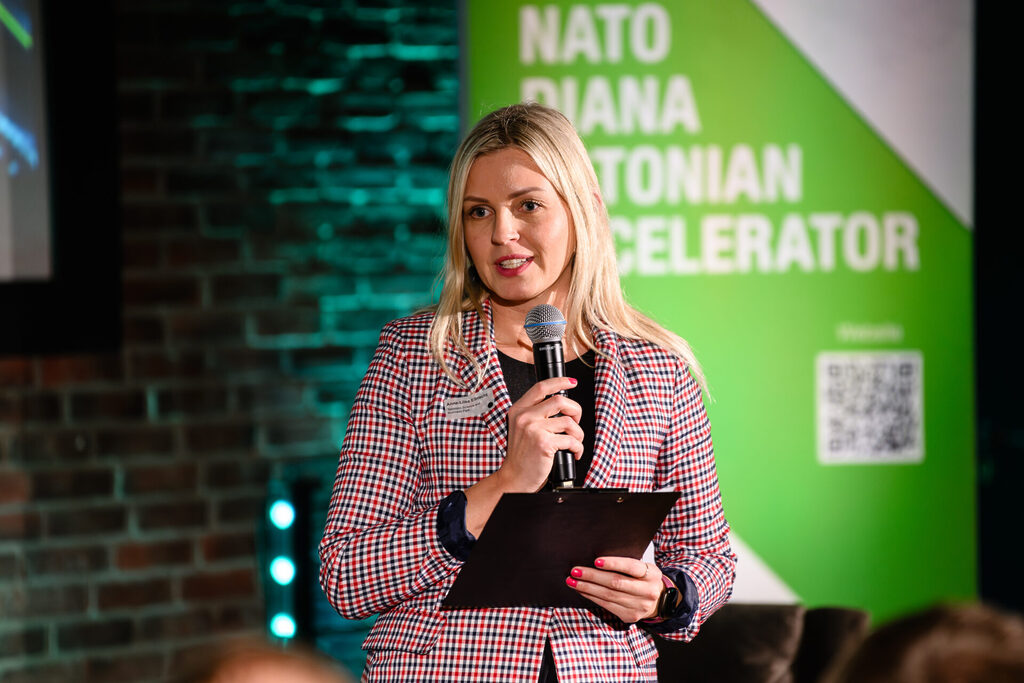
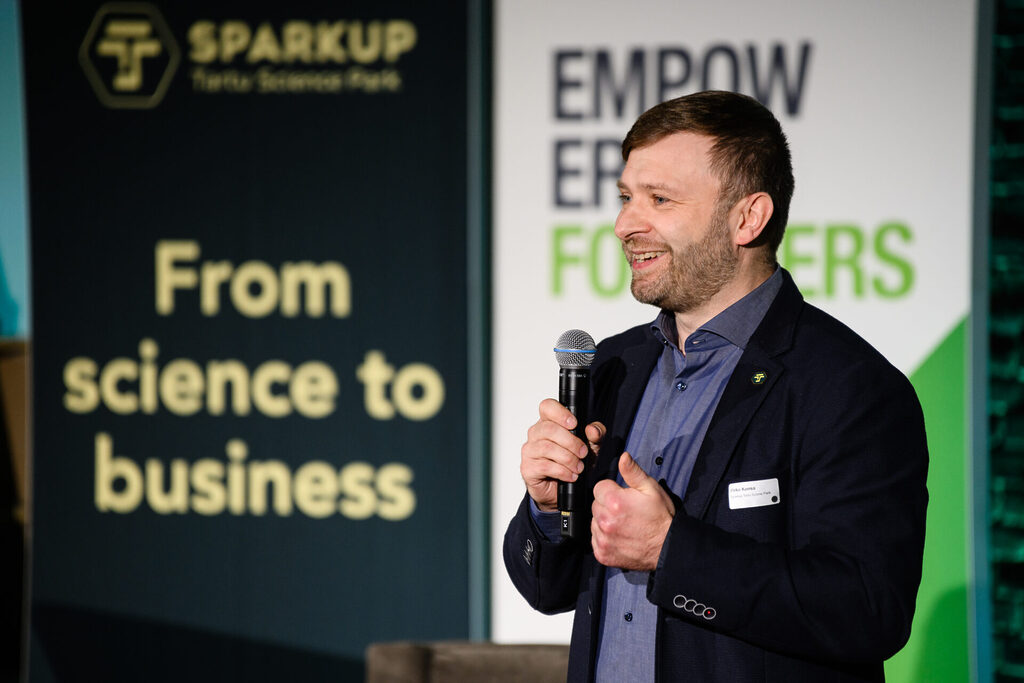
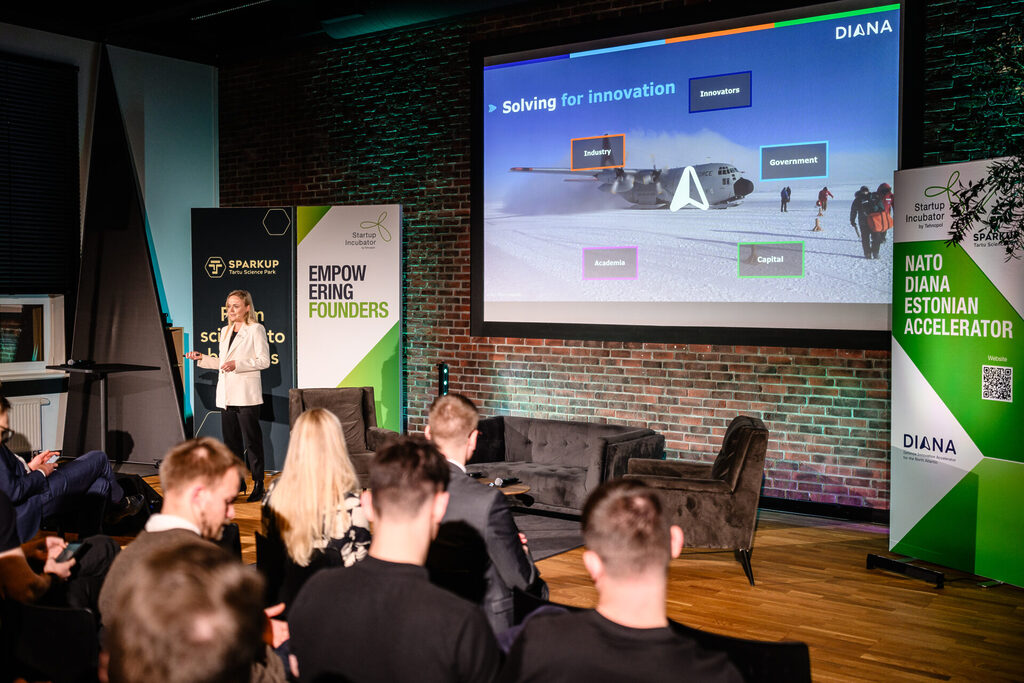
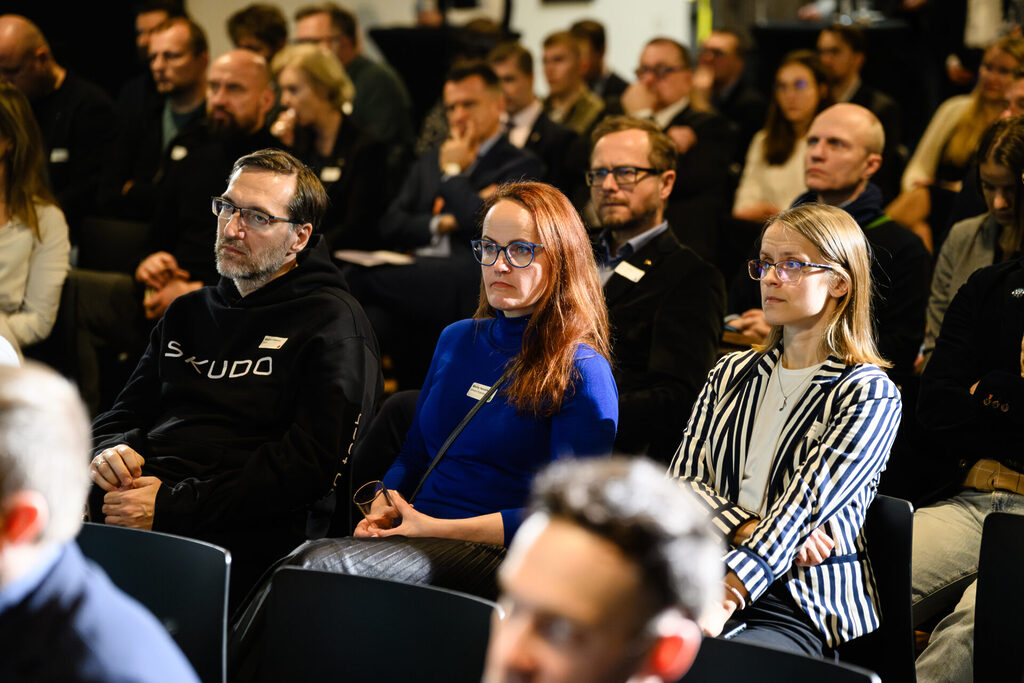
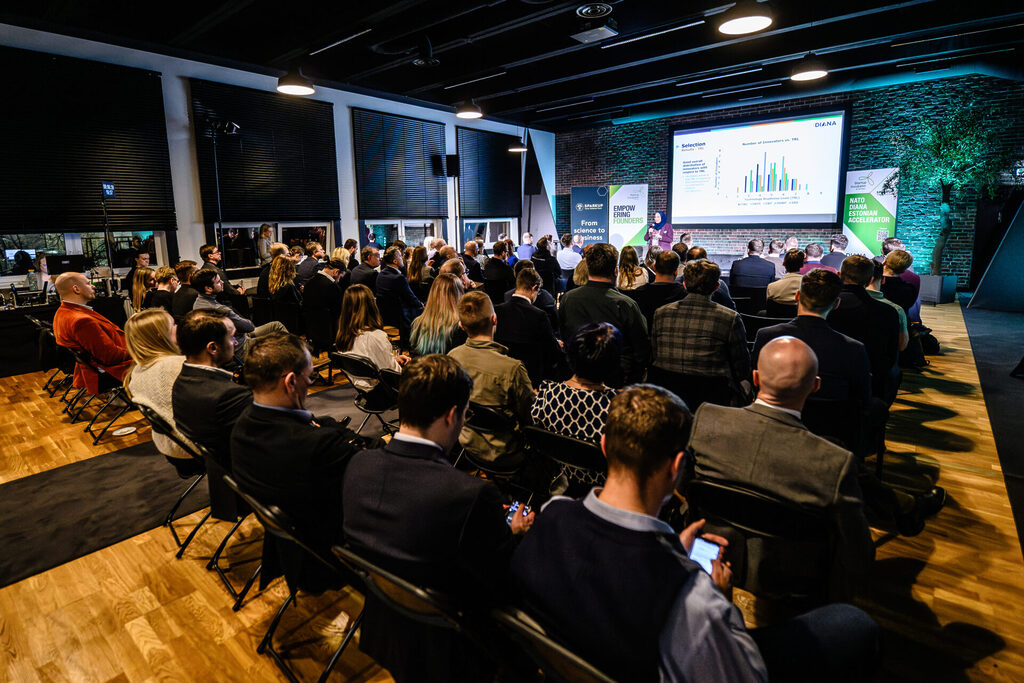
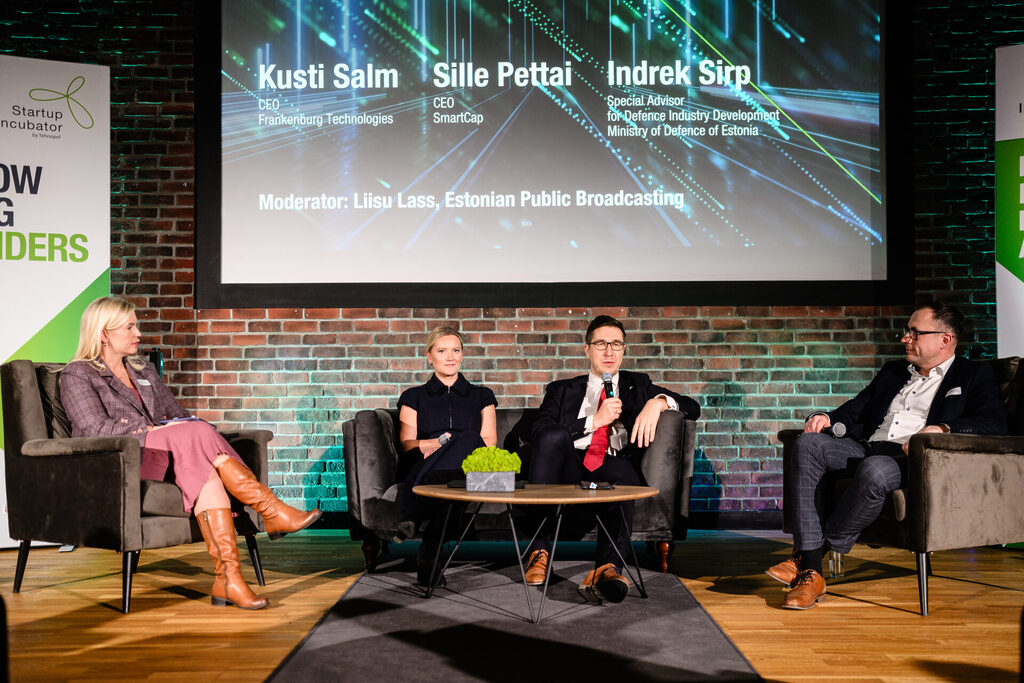
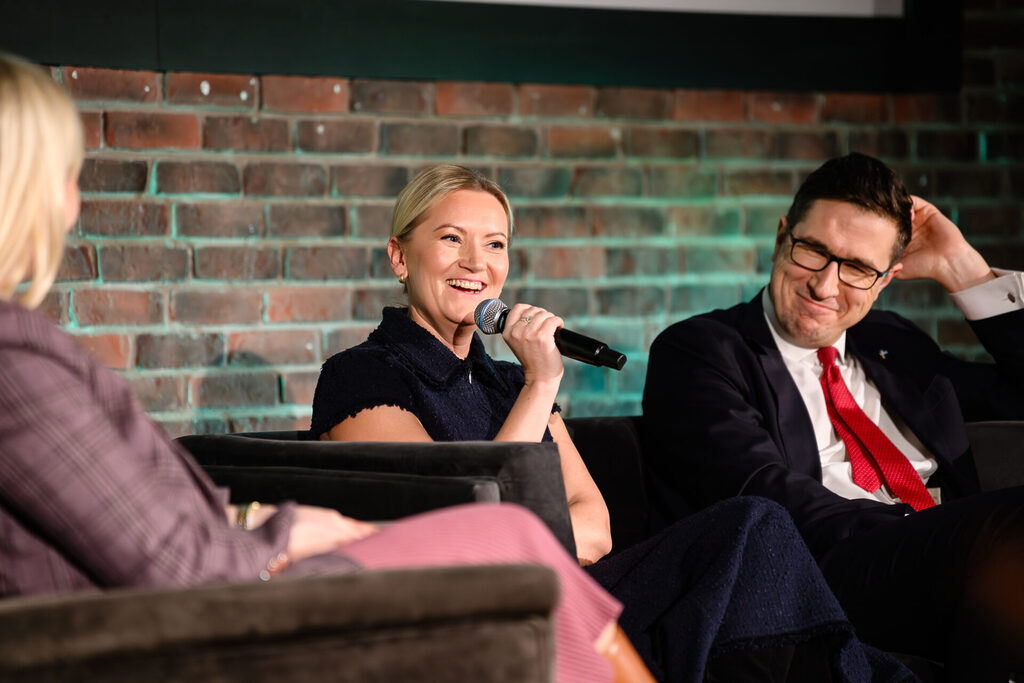
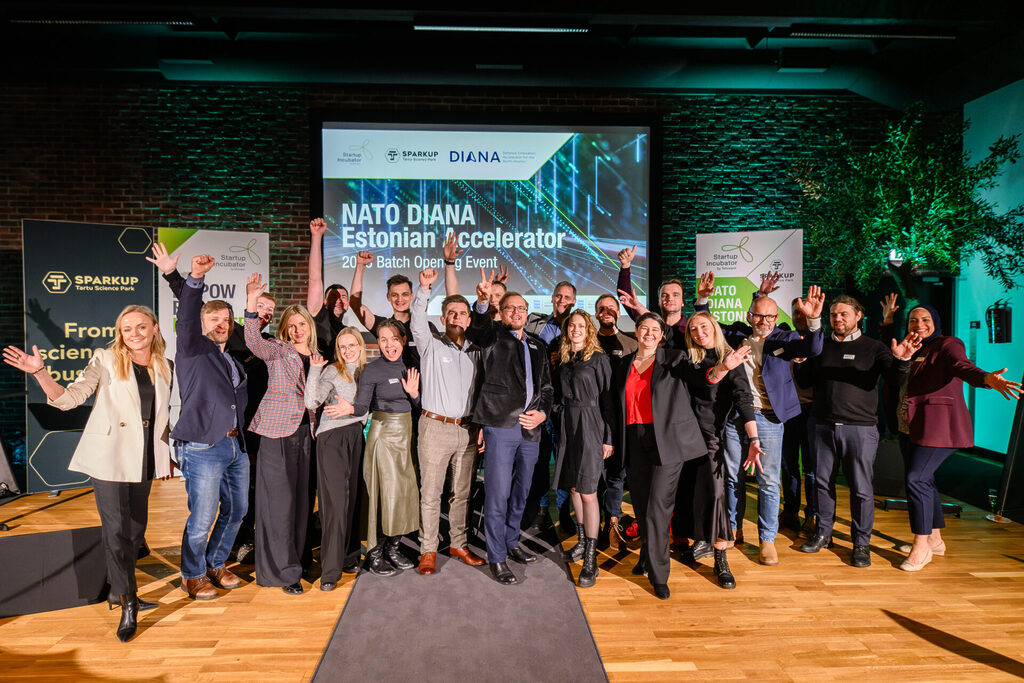
From football to documentaries and social media: How Estonian startup is transforming video editing
Estonian video-tech startup SoFutu aims to revolutionize automated video editing across industries, having secured backing from AWS and a major Nordic media house.
The company’s journey began with an unexpected customer request from a Bulgarian football team struggling with time-consuming video analysis.
“They were spending four to five hours a day processing video from their training, next rival, and last game,” explains Federico Winer, SoFutu’s Argentinian founder. This manual video editing bottleneck is common among tier-two to tier-five sports teams that lack dedicated video analysis departments.
While the company’s initial solution helped sports teams cut their video processing time by 50%, SoFutu has evolved beyond sports to target broader markets. The startup has developed an AI algorithm that detects video and audio content patterns, making it a valuable tool for social media creators, television producers, and filmmakers.
“For every minute you edit in cinema or documentaries, you can have hundreds of hours of editing,” Winer notes. “While we’ll never replace the artistic component, we can save hundreds of hours on rough cuts for different teams across the industry.”
SoFutu believes it stands out in the competitive AI video editing landscape because of its focus on efficiency and accessibility. “We deliver 80% of the result at 20% of the cost,” says Winer. The company has also designed its solution to work offline, considering potential customers in regions with limited internet connectivity.
The startup’s Estonian base has proved advantageous. As the only EU-based company among major players in the automated video analysis market, SoFutu believes it is well-positioned to capitalize on the EU’s push for AI and machine learning solutions. The company is one of the first teams in Tehnopol Startup Incubator`s Film and Multimedia Accelerator.
SoFutu has shown promising early traction, reaching 100 users in its first quarter and securing an investment from Amazon Web Services for its AI cloud prototype. A Nordic media hub has signed a €50,000 letter of intent, looking to implement VisioTag’s technology to improve workflows for over 200 journalists.
Looking ahead, SoFutu aims to reach more than 10.000 users within five years. The company is seeking partners to help productize its AI module in the cloud and additional funding to accelerate B2B sales growth in the media industry.
“The media industry is shifting,” Winer explains, drawing from his experience at major American sports media outlets. “You need new tools to achieve your goals. It’s about how you present the information, not just the information anymore.”
The activities of Tehnopol Startup Incubator’s Film and Multimedia Accelerator are funded by the European Union.
Gallery from the forest camp of the NATO DIANA Estonian accelerator
Teams from the second cohort of the Estonian NATO DIANA accelerator met in Estonia for the first time in January. They spent two days of a busy week of training in a forest camp at the Roosta Holiday Village. The location deep in the countryside allowed the seven companies accepted by the accelerator – Factiverse, Scaleout, IS-Wireless, ResQuant, Microamp Solutions, Telearmy and Wayren – to ignore all outside distractions and focus on practical training and individual meetings.
The key themes of the forest camp were leading a team, differences from the world of startups, business models for dual-use solutions, and product development. The teams from Poland, Estonia, Sweden and Norway were supported by trainers from the Combat Ready team and by Villiko Nurmoja and Tauri Tuubel.
Head of the Tehnopol Startup Incubator Anne-Liisa Elbrecht said the teams were full of enthusiasm to get going: “All seven teams came to Estonia to get the most they can out of the programme. The feedback from the forest camp has been very encouraging and the teams are very much looking forward to being able to come to Estonia again in March”.
Co-founder and CTO of Microamp Solutions Marcin Góralczyk agreed: “I am certain that the NATO DIANA Estonia accelerator will boost our sales and help the company develop a long way”.
The base for the camp gave the teams not only training, but also the chance to go for walks through the snow by the sea, and try out the local sauna traditions. On the journey back to Tallinn they had fully switched back into work mode though, and the bus was lit up by laptop screens in the darkness as the startups worked on their pitches for the opening event the next day.
The accelerator in Estonia is run by the Tehnopol Startup Incubator working together with Sparkup the Tartu Science Park. The funding to start the accelerator in Estonia comes from the Ministry of Economic Affairs and Communications with support from the Ministry of Foreign Affairs, the Ministry of Defence and the city of Tallinn. Estonian contributors to building the pan-Alliance network of testing centres are TalTech, the University of Tartu, Foundation CR14, the National Defence College, the Estonian Academy of Security Sciences, the Estonian Aviation Academy, and Metrosert.
The full gallery from the forest camp can be found here.
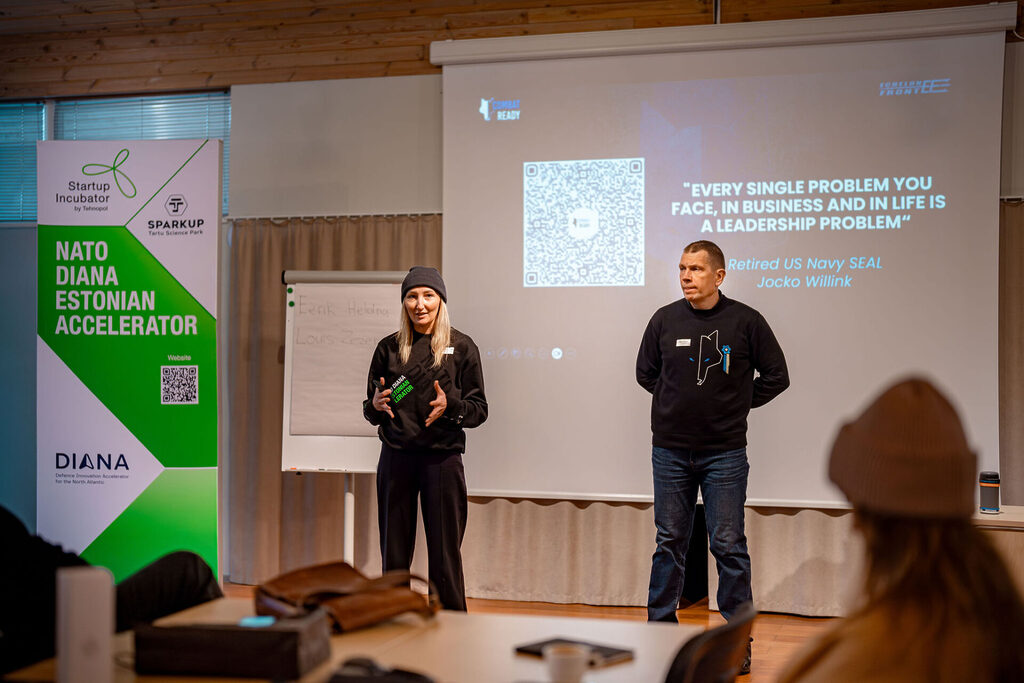
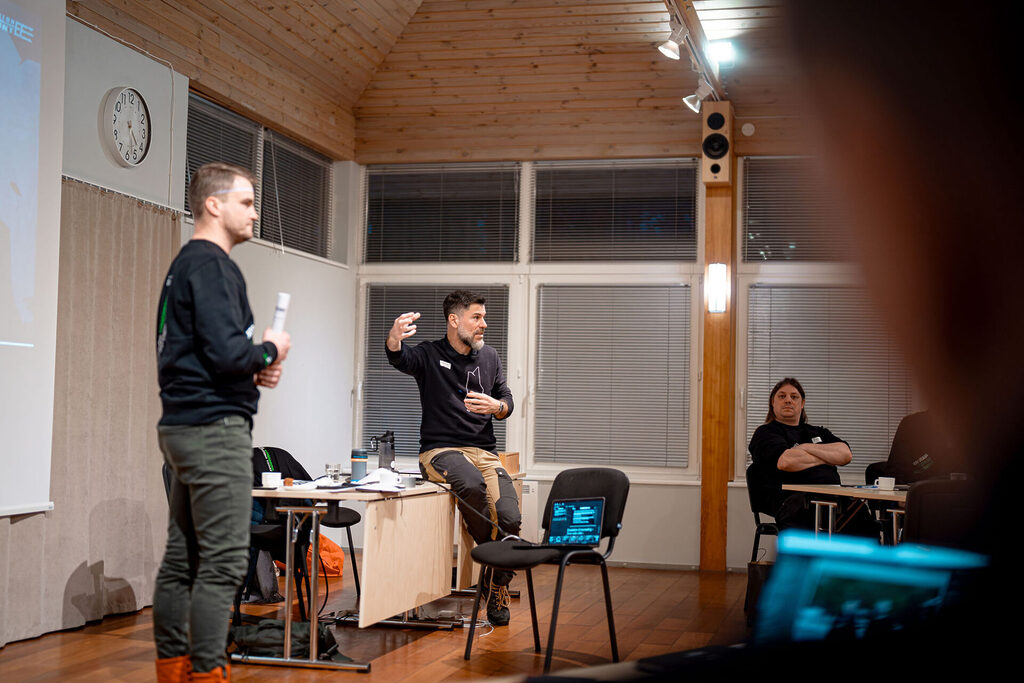
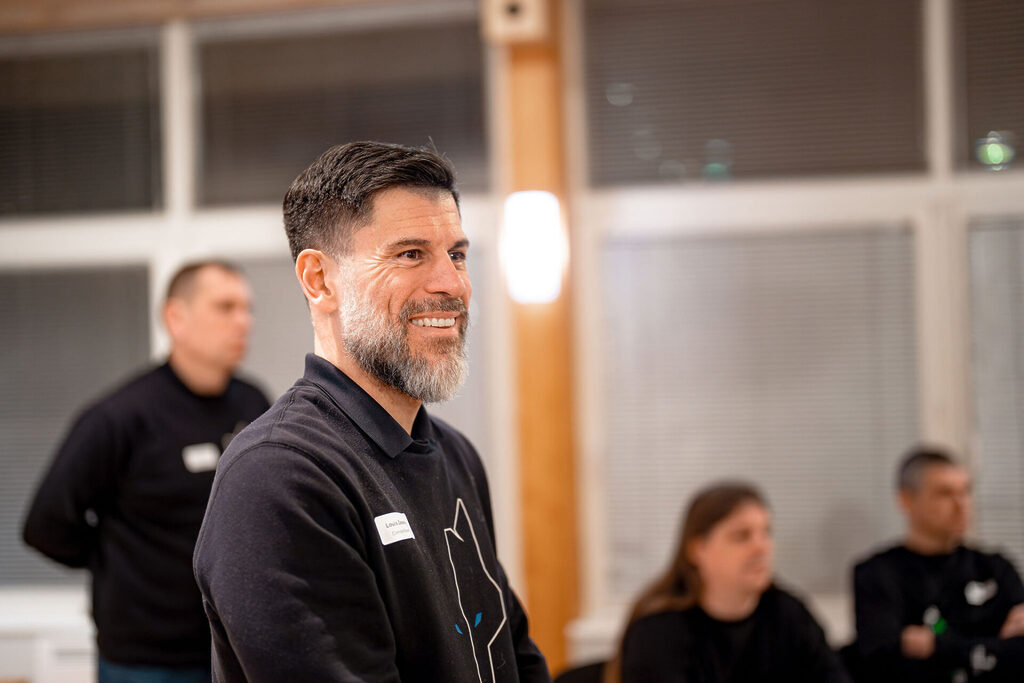
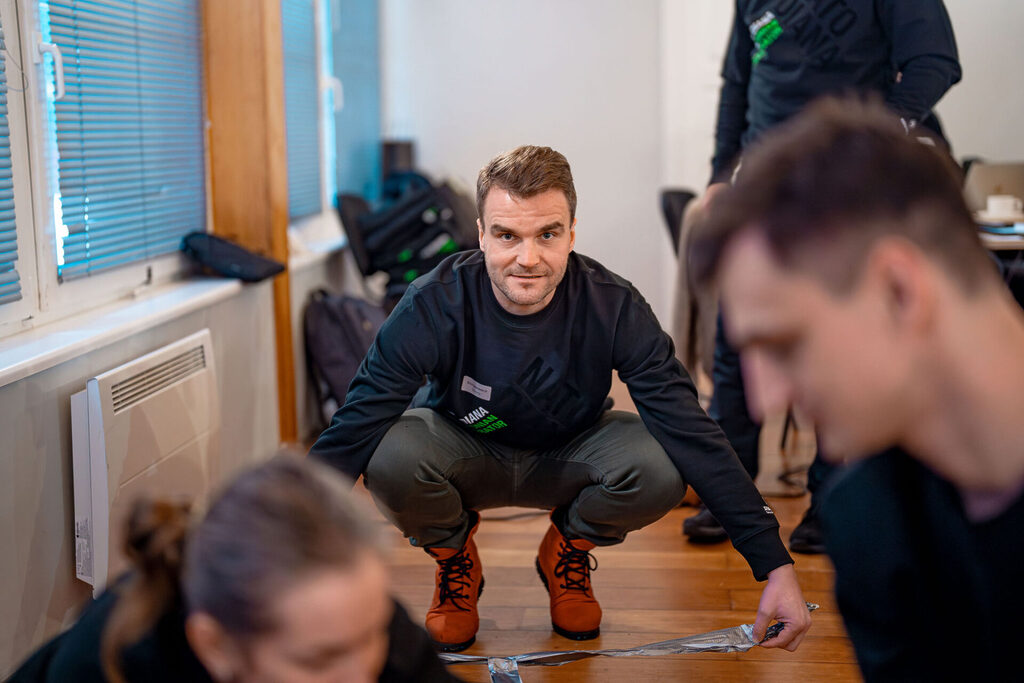
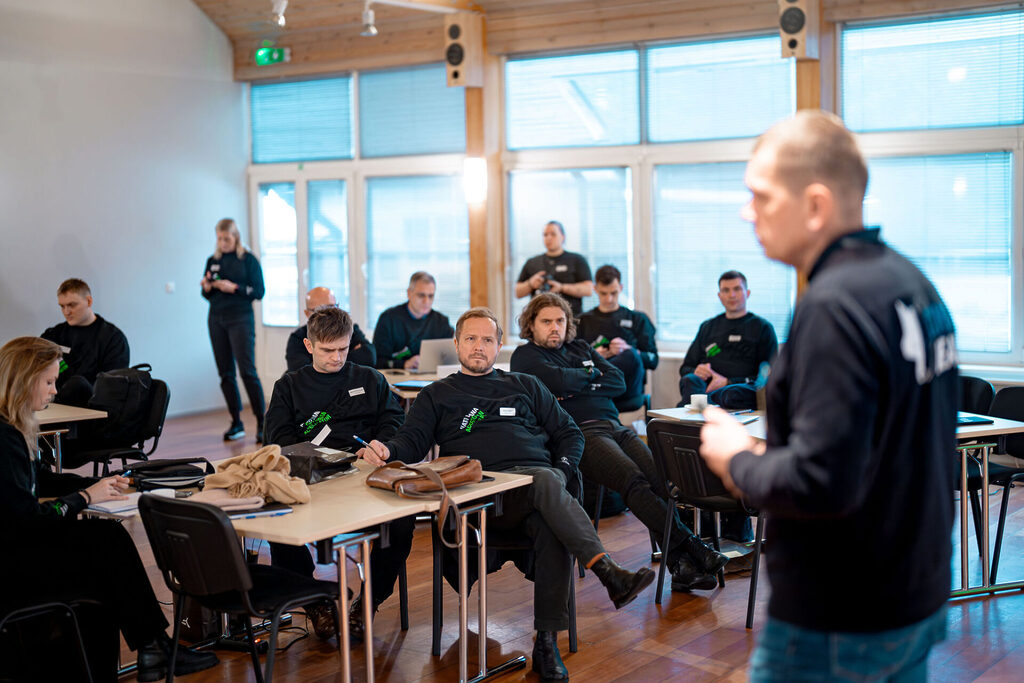
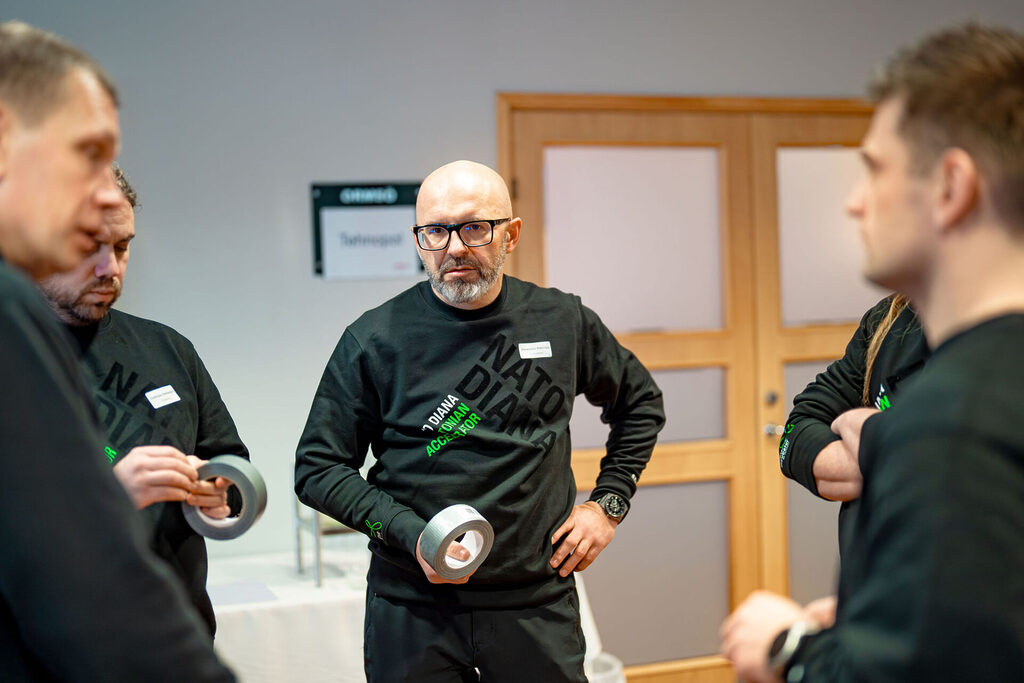
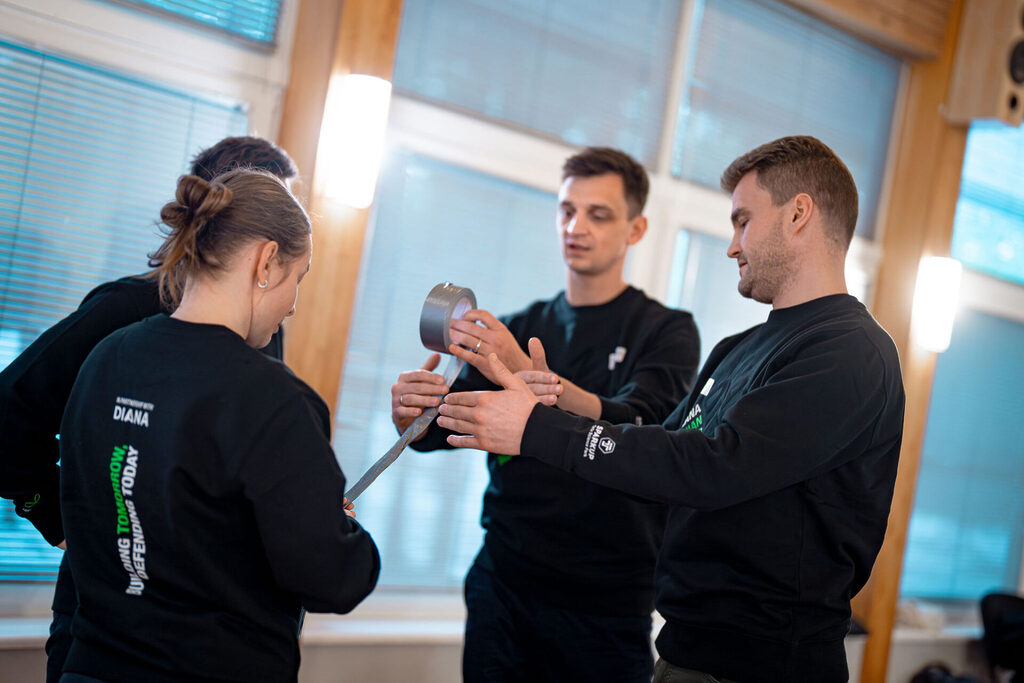
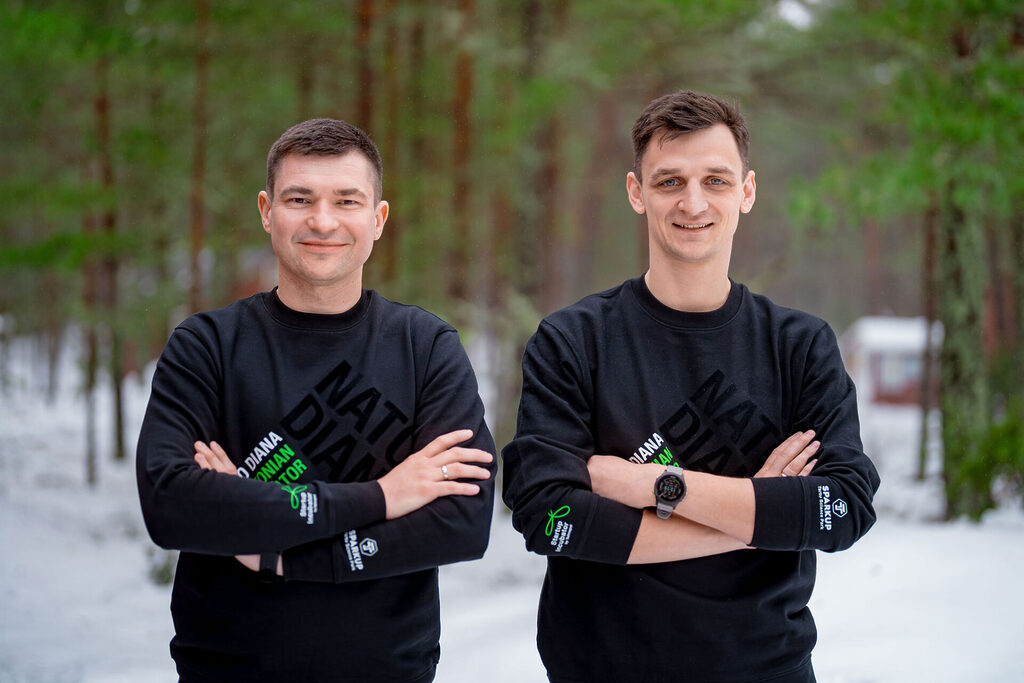
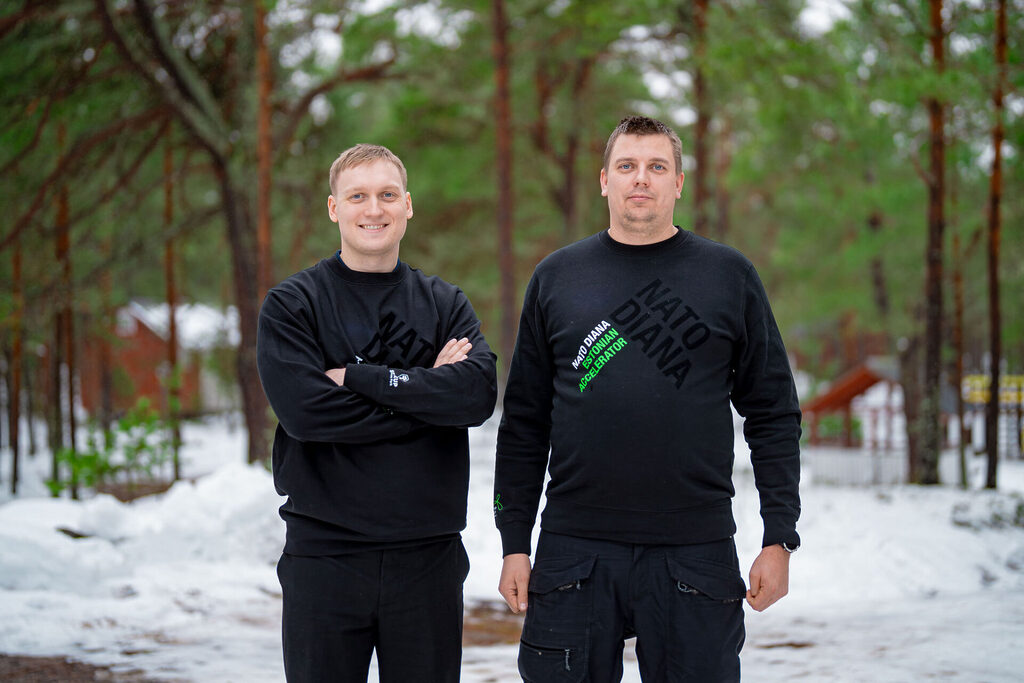
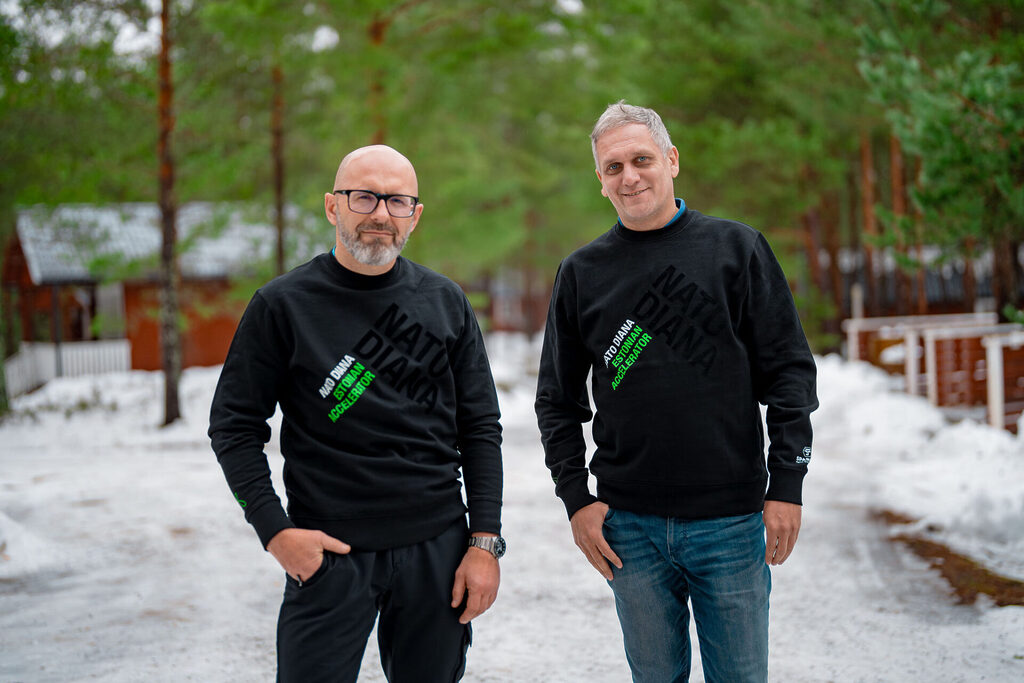
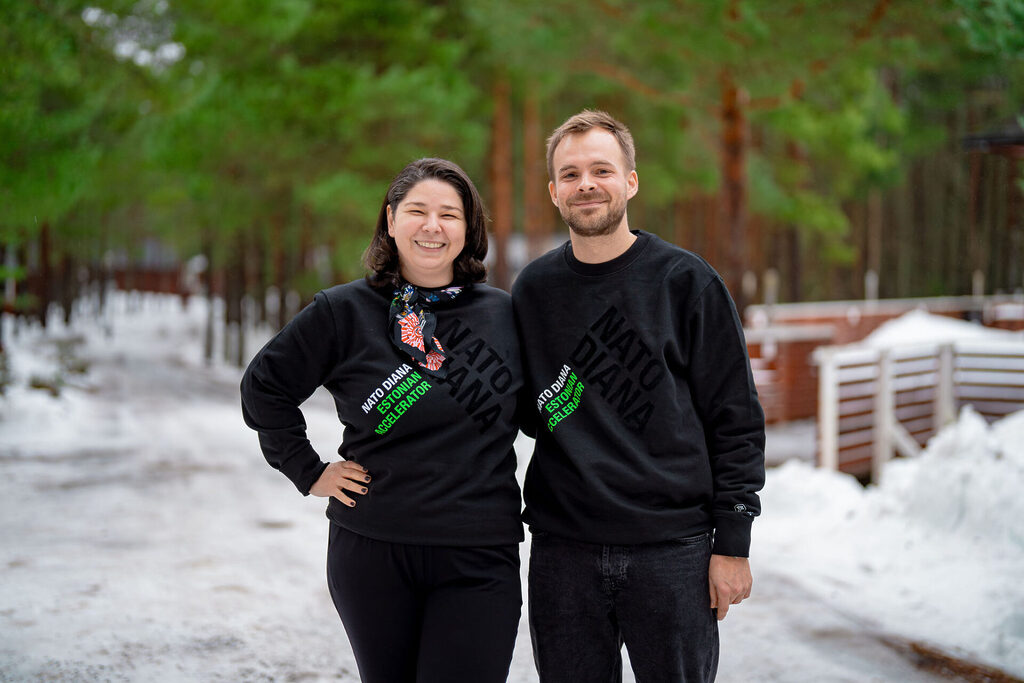
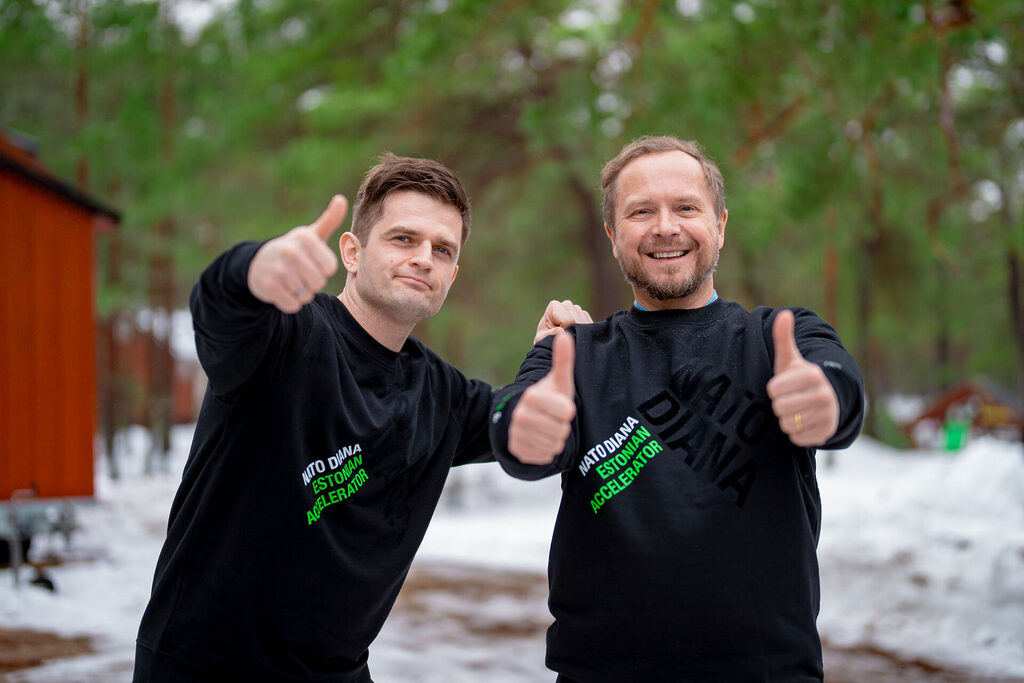
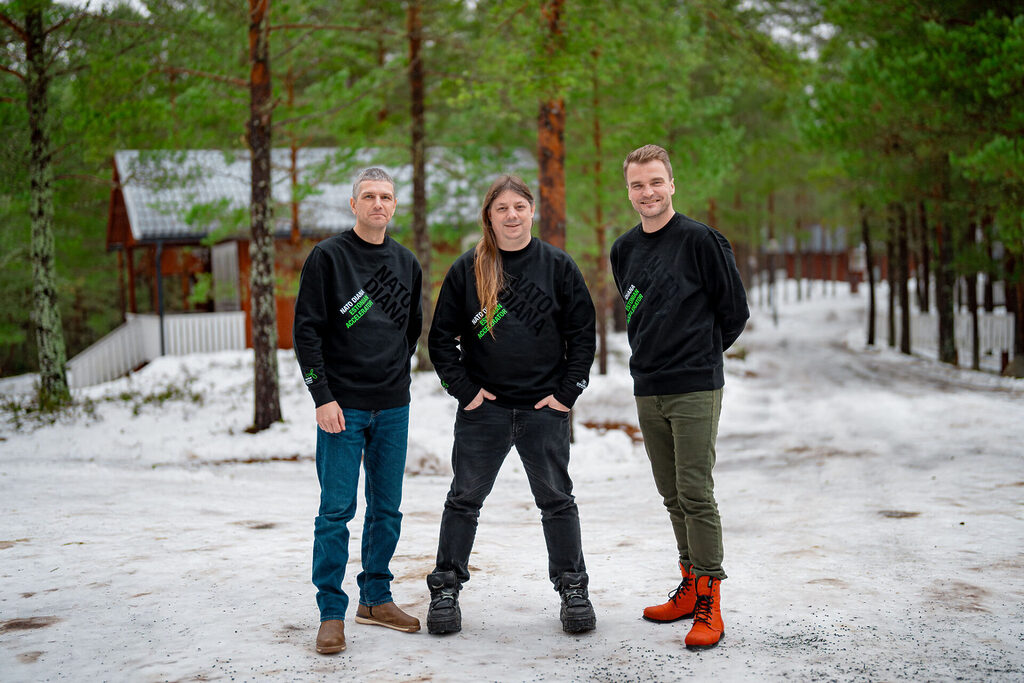
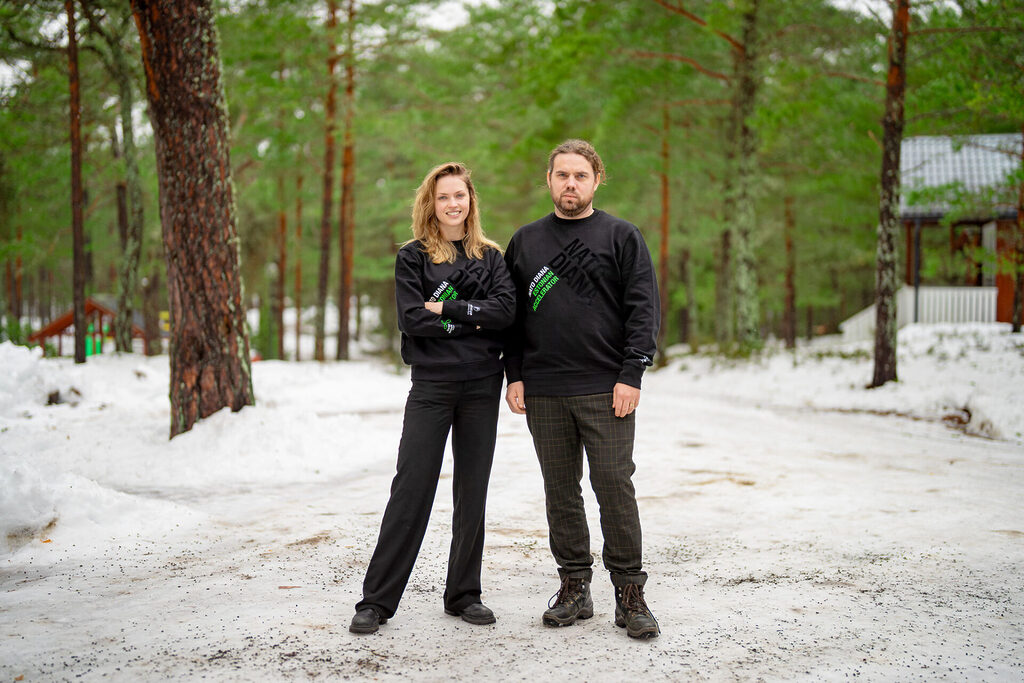
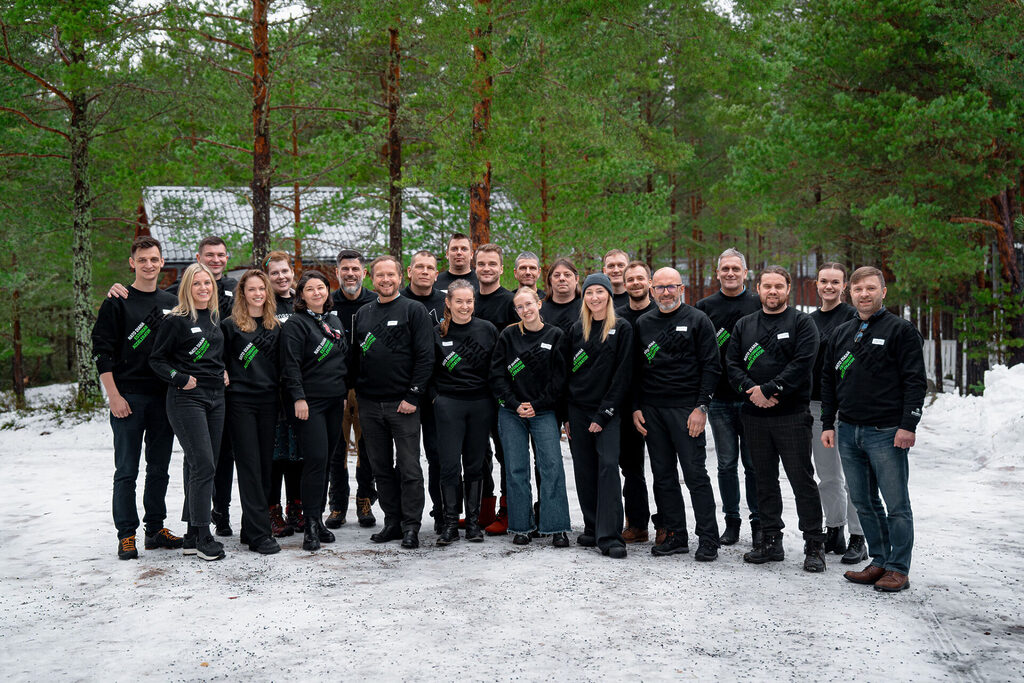
Startup story: Sehaci X Tehnopol Startup Incubator
Tehnopol Startup Incubator, in cooperation with the Information System Authority (RIA) and the European Cybersecurity Competence Centre (ECCC), ran the Cyber Accelerator, where eight startups developed their products or services. Let’s get to know them better – meet Sehaci.
Sehaci ensures a simple customer ID verification process for companies across various industries using mobile driver’s license technology directly from the user’s smartphone’s digital wallets, employing advanced cryptographic mechanisms.
Sehaci was founded by Armands Antans, who brings extensive experience in mobile security and payments, and Janis Plakanis, an experienced project management professional. Their combined expertise forms a complementary founding team, with Janis serving as CEO and Armands as CTO.
Janis Plakanis introduced the startup in more depth.
How did you come up with the idea to create a startup?
“While working in the payments industry, Armands noticed that recent developments in the digital identity space were creating potential synergies with payments, following similar trends he had observed in the payments industry overall. These observations led him to recognize an opportunity to build a company that could capitalize on the evolving digital ID landscape. This vision prompted Armands to invite Janis to join forces, leading to the creation of Sehaci.”
What have been the biggest challenges/failures and the biggest wins so far?
“Since our service is currently available only in the US market, our biggest challenge has been securing our first customers there. Our most significant achievement so far has been successfully developing a working MVP.”
What sets your startup apart from competitors?
“We use mobile driver’s license technology for ID verification and it elevates the ID verification to a new level by offering a more secure and frictionless experience for end users, while being 10 times faster than traditional methods that require pictures of physical IDs and selfies.”
Why did you apply to the Cyber Accelerator?
“We applied to the Cyber Accelerator for two main reasons. First, the program provides invaluable mentor and expert support through Tehnopol’s extensive network, offering guidance for any challenge we might face. Second, the EU grant funding has been crucial in supporting our product development and market entry activities. Thanks Tehnopol for that.”
Where do you see your startup in 1 year? And where in 5 years?
“In one year, we envision Sehaci as an established startup with solid recurring revenue. In five years, we aim to be one of the world’s leading companies helping businesses solve their digital ID challenges.”
Who is the next (Estonian) unicorn?
“We believe Sehaci has the potential to become a unicorn, though we recognize this is a long-term goal. Meanwhile, we’re impressed by the innovative technologies developed by Estonian startups like Skeleton Technologies and Vocal Image.”
Which books/podcasts/publications and influencers in your field do you follow and would recommend to other aspiring entrepreneurs?
“I highly recommend The Pursuit of Scrappiness podcast, which features diverse voices from the Baltic startup scene. The show offers inspiring insights into our region’s rich startup ecosystem and demonstrates what can be achieved in this space.”
If you’d get a chance to meet with Elon Musk, Mark Zuckerberg, and Jeff Bezos, what would you ask them? (1-3 sentences)?
“I would ask what business they would all three build together or maybe something about money spent on political contributions instead of spending on R&D.”
Next, we are inviting startups to apply for the Startup accelerator. It’s often said that if you go alone, you’ll get there faster, but if you go together, you’ll go further. The Tehnopol Startup Incubator accelerator supports your tech startup on its journey to becoming investment-ready. We offer the best and most high-quality program in the region, as well as expert advice for scaling your startup. 10 carefully selected companies will join the 6-month accelerator. Read more here!
Cyber defense, underwater drones and wave energy: the companies shaping phase 2 of NATO DIANA’s accelerator
The companies that will participate in the NATO DIANA accelerator in Estonia in 2025 were announced recently. The participants in the 2024 programme are also still busy in it though, as three companies that got through to the second phase in the Estonian accelerator will remain there until February. Who are they and what are the solutions that they use to contribute to our security?
Every startupper knows by now that DIANA has nothing to do with the British Princess of the same name, but it does not hurt to repeat what Diana is. The NATO DIANA accelerator has two phases. Over 1300 companies applied to the accelerator in 2024, and 44 of them were chosen to participate in the first phase of the programme. Nine of those 44 companies started their road to development in Estonia, where the innovation accelerator is led by the Tehnopol Science and Business Park working together with Sparkup, the Tartu Science Park.
At the end of the first phase, the top 10 companies were chosen from among those participating. The dual use deep-tech innovators who showed the greatest potential continued into the second phase of the NATO DIANA accelerator in September 2024. This brought them additional funding of up to 300,000 euros and one-to-one support in finding investment and commercial opportunities.
Three of the ten companies are continuing to work in Estonia, and they are Lobster Robotics, Dolphin Labs and Goldilock.
British company Goldilock provides a way of physically segmenting digital assets, devices, networks and operating systems remotely and instantly in order to combat cybercriminals. The system works even without an internet connection. Goldilock signed a partnership agreement in April 2024 with the Estonian cybersecurity foundation CR14, which supported them throughout their testing work in the NATO DIANA programme.
The Dutch company Lobster Robotics has developed mass-produced underwater drones that produce high-definition maps of the seabed. Like Google Maps, but underwater. They can identify suspicious objects near to critical underwater infrastructure, but can also count oysters in reefs that are being restored.
“The first phase gave us our wings in the defence industry, and in the second phase we have actually learned to fly properly. We have demonstrated our technology in four different countries and almost doubled the size of our team. The unwavering enthusiasm of the Estonian accelerator for working together with us, introducing us to the right mentors, and giving us the final push despite our hesitations has been decisively important for us”, said CEO and co-founder of Lobster Robotics Stephan Rutten (on the photo).
The wave energy converter made by Dolphin Labs of the USA works underwater to produce constant and renewable electricity that can power a network of remote sensors, underwater microgrids, and communication systems. This technology will help us learn more about the maritime world and improve the safety and security of the natural resources of the open oceans and of critical infrastructure.
If you want to be the founder and CEO who is quoted in these reports in future years, you can find more information about the NATO DIANA accelerator in Estonia here and you can leave us your contact details at the bottom of the page.
Startup story: Claricy X Tehnopol Startup Incubator
The Tehnopol Startup Incubator organizes several specialized accelerators throughout the year to support early-stage companies and help them build connections and enter the market. One of these is the AI accelerator, which is for startups developing AI-based solutions. One of the participants in this accelerator was the startup Claricy. Let’s get to know them better!
Claricy develops behavioural analysis and educational technology called IRIS-X. This technology enables people to understand and improve their financial behaviour through psychological analysis and personalized behavioural financial advice. Since April, the company’s team has participated in a total of four business accelerators and started applied research in collaboration with psychology experts from Tallinn University – all to ensure that the technology, built on a delicate topic, is based on real needs and scientifically proven methods.
Johanna Stina Haar, CEO and founder of Claricy, is the visionary behind the idea. With a Bachelor’s degree in accounting and a Master’s degree in IT management, she has gained practical experience in both fields, which she has applied to entrepreneurship for nearly three years.
In addition to Johanna Stina, the founders of IRIS-X include her brothers, Mikk Kalma and Kristjan Kalma. Mikk has nearly 20 years of experience in IT management, which has given him a strong foundation in creating IT infrastructures and ensuring security. His critical thinking provides the team with a grounded perspective. Kristjan has worked as a digital product manager for almost nine years, and his skills in time management and leading development teams ensure a clear focus and alignment of technologies with the business vision.
Johanna Stina introduced the startup and their plans for the future.
How did you come up with the idea to create a startup?
“Since all the founders have a technical background, it’s in our nature to use technology to solve problems. We’ve spent evenings brainstorming different business ideas and discussing services that have fallen behind with outdated technology. Due to working in the same field, helping, supporting, mentoring, and exchanging ideas with each other has been part of our daily communication on Discord for many years – starting a joint company was only a matter of time.”
What have been the biggest challenges/failures and the biggest wins so far?
“The biggest challenge has been securing funding for the research. Our first application was met with a negative response, but thanks to strong motivation and determination (or perhaps stubbornness), it eventually resulted in a positive outcome. This turned our greatest challenge into our greatest victory. In addition to securing research funding, another significant victory has been participating in the Tehnopol AI accelerator, as it truly sped us up from 10 km/h to 100 km/h. After participating in the AI accelerator, both the company and its team have undergone remarkable development.”
What sets your startup apart from competitors?
“The founding members of IRIS-X are people who trust each other the most as business partners. We know each other’s strengths and personalities inside and out, which is why our ability to work together has already proven itself (and a good sense of humour helps us overcome all obstacles).
Secondly, the idea behind IRIS-X is built on a solid foundation of research. We have an excellent collaboration with Tallinn University, supported by Ingrid Hindrikson from the university’s side, and psychologists Aleksander Pulver and Kadi Liik, who are actively working on the research. Their contributions to the solution we are creating are of immense value. You can read more about the ongoing research here.”
Why did you choose Tehnopol Startup Incubator?
“Since we use AI solutions in our technology, applying to the Startup Incubator’s AI accelerator was a logical step. We knew the accelerator was specifically focused on the development of AI solutions, and since the field is still so new, we have a lot to learn from it. The AI accelerator also supported us with equity-free funding – every euro is valuable for an early-stage startup.”
Where do you see your startup in 1 year? And where in 5 years?
“In one year, it’s “game on” – by that time, we will have hundreds of initial test users who will help us gather objective feedback for further service development. Additionally, by then, our first research study will be completed, we will have secured funding, will continue to invest in research and development, and we will have expanded the team by at least 10 people.
In five years, we will already be on the international market. By that time, we will have irreversibly changed the world of financial advice, becoming the leading providers of behavioral finance solutions in Europe.”
Who is the next (Estonian) unicorn?
“It’s hard to say who might get ahead of us. We definitely see potential in solutions for the medical field – since the public sector in Estonia is quite receptive to new IT solutions, piloting medical solutions in this region is likely easier. Additionally, the competition between the public and private sectors in this field seems smaller, but the demand for IT solutions remains high.”
Which books/podcasts/publications and influencers in your field do you follow and would recommend to other aspiring entrepreneurs?
“Huberman Lab; Lex Fridman Podcast; the book „The Billion Dollar Secret“ and Diary of CEO.“
If you’d get a chance to meet with Elon Musk, Mark Zuckerberg, and Jeff Bezos, what would you ask them?
“First, I would conduct user interviews with all the aforementioned individuals to identify potential collaboration opportunities and understand what financial problems they might be facing. Then, I would also seek funding from them to develop IRIS-X.”
Next, we are inviting startups to apply for the Startup accelerator. It’s often said that if you go alone, you’ll get there faster, but if you go together, you’ll go further. The Tehnopol Startup Incubator accelerator supports your tech startup on its journey to becoming investment-ready. We offer the best and most high-quality program in the region, as well as expert advice for scaling your startup. 10 carefully selected companies will join the 6-month accelerator. Read more here!
Industry experts intervene in IDA Hub’s Film Accelerator activities
In the spring of this year, the Film and Multimedia Innovation Center, IDA Hub, was launched in Ida-Viru County under the leadership of Tehnopol, the Ida-Viru Investment Agency, and the Ida-Viru Enterprise Center. The center aims to create the necessary conditions for serving international productions in Estonia and thereby support the development of the audiovisual sector. To enhance the synergy between the film and technology industries, an advisory board has been formed, consisting of leading industry experts and representatives of the startup sector.
Members of the advisory board include Tiina Lokk-Tramberg, Katre Valgma, Anti Reinthal, Maarit Mäeveer-Eller, Madis Tüür, Esko Rips, Kristofer Piir, Kaupo Karelson, and Alvar Kõue.
The role and goal of the advisory board are to provide input, offer guidance, foster collaboration, and ensure the sustainable development of the film accelerator. Advisory board members have the opportunity to be advocates for promoting innovation and supporting the emergence of new technology companies in the film and multimedia sectors. Additionally, members have a unique chance to give the startup sector specific “assignments” to tackle innovation challenges in the film industry.
Tiina Lokk-Tramberg, Director of the Black Nights Film Festival (PÖFF), expressed her hope to see transformative technological advancements resulting from this initiative. “Film is a fascinating phenomenon. When a film premieres, we discuss its artistic quality and rarely consider the budget, the team, or – which is increasingly important today – the technology used to create it. The quality of a film often depends on the technology employed. This is where the true appeal and significance of IDA Hub’s accelerator lie – it combines traditional filmmaking and its needs with the latest technological advancements. I hope that collaborative brainstorming leads to out-of-the-box thinking and potentially world-changing technological developments,” Lokk-Tramberg commented.
The goal of the Film and Multimedia Innovation Center IDA Hub is to support the development of film talent and innovative future-makers. IDA Hub’s strength lies in providing comprehensive solutions and the capability to connect technological advancements with the needs of the film industry. The film accelerator, managed by the Tehnopol Startup Incubator, helps startups develop technology-based products by offering training, mentorship, and access to an international network.
Olga Kurdovskaja, Program Manager of the Film and Multimedia Accelerator at Tehnopol Startup Incubator, highlighted the significance of establishing the advisory board. “This is crucial for promoting innovation in both the local and international film industry, as technologies, including artificial intelligence, significantly impact film production and distribution – from concept to premiere. By bringing together the expertise of the startup sector and film professionals, we can introduce fresh, practical, and sustainable solutions that meet the real needs of the film industry. Our goal is to foster collaboration that makes the film industry more innovative, environmentally friendly, and sustainable,” said Kurdovskaja.
The development of the IDA Hub Film Innovation Center is funded by the European Union through the Just Transition Fund measure.
On the battlefield, in space or at Rally Estonia. The Estonian companies chosen by the NATO innovation accelerator are developing multifunctional technologies
The original article was published in Delfi (in Estonian) on December 11. We publish the translation with their permission.
Two Estonian startup companies were this year awarded the seal of approval by NATO. One of them works with uninterruptible communications, and the other drives unmanned vehicles into battle.
The NATO DIANA (Defence Innovation Accelerator for the North Atlantic) accelerator, now operating in its second year, announced the next batch of companies that will start to develop their civilian and military dual-use technologies in the next half year. Only one Estonian firm, GaltTec, made it through to selection last year, but this year two Estonian startup companies, Telearmy and Wayren, were chosen.
The innovation accelerator has increased its scale this year. There were five accelerators operating across the alliance last year, but this year there are 13, and the 1300 companies that applied to the programme last year have turned into 2600 this year. The number of companies accepted into the programme has consequently also grown so that where there were 44 last year, there are now over 70 companies from 20 NATO countries.
All the companies chosen for the accelerator will receive 100,000 euros in funding.
Seven of the companies will be starting their development path in Estonia, as the local startups Telearmy and Wayren will be joined here by the foreign companies Scaleout from Sweden, Factiverse from Norway, and ResQuant, IS-Wireless and Microamp Solutions from Poland. They will base their operations in Mustamäe at the Tehnopol Startup Incubator, which leads the accelerator together with Sparkup Tartu Science Park.
The startups chosen for the accelerator will now enter a six-month training programme during which they will all receive 100,000 euros in funding. The best among them can receive up to 300,000 euros more in additional funding after the half year of the programme.
Helping save lives
As mentioned, there were a lot more companies applying for each place this year than there were last year. What was it then about the two Estonian startups that persuaded the committee members to choose them?
The decision-makers at the NATO DIANA innovation accelerator are not sharing their reasons, certainly not publicly and apparently not even to the candidates themselves. The answer to the question may lie though in the challenges that were set this year and that the NATO member states have identified as priority areas for development. These areas were energy and power, data and information security, sensing and surveillance, human health and performance, and critical infrastructure and logistics.
The companies chosen from Estonia seem to fall under the last of these categories.
Telearmy is developing products that have already demonstrated their value on the front line in Ukraine. They are working with technology that can be retrofitted to existing vehicles to allow them to be driven remotely through Starlink or Radiolink from a long distance away and at high speed. Allowing these vehicles, which may carry ammunition to the front, evacuate the wounded or carry out reconnaissance, to be driven securely from a distance saves lives, as it means no actual person needs to be on board the vehicle.
“Telearmy is one of the first companies to make remote vehicle control widespread and accessible for the military. Our technology has already been tested by leading original equipment manufacturers and proven reliable under 4G conditions, as well as on the front line using Starlink, and is being tested in military networks”, said CEO of Telearmy Enn Laansoo jr in September, when the firm was working together with a Ukrainian charity. “Telearmy offers many advantages like easy upgrade of existing vehicles, quick installation, and lower costs than other unmanned solutions”, he added.
Telearmy’s technology can be used not only by the military, but also by companies in logistics and road safety. The leaders of Telearmy were working in Ukraine when this article was being written and could not be reached by Delfi.
Information exchange is critically important
Henry Härm of Wayren, the other company chosen, is able to tell Delfi about why he thinks they were selected. “We provide communications links that cannot be disrupted in the toughest conditions in the world”, he said. This is the key designation of the company and describes clearly and simply what it does. The Wayren platform helps maintain contact in the hardest environments. “In a military context the toughest environment is the battlefield, but there can also be similar challenges in civilian life, such as mining, space or even Rally Estonia”, chuckled Härm.
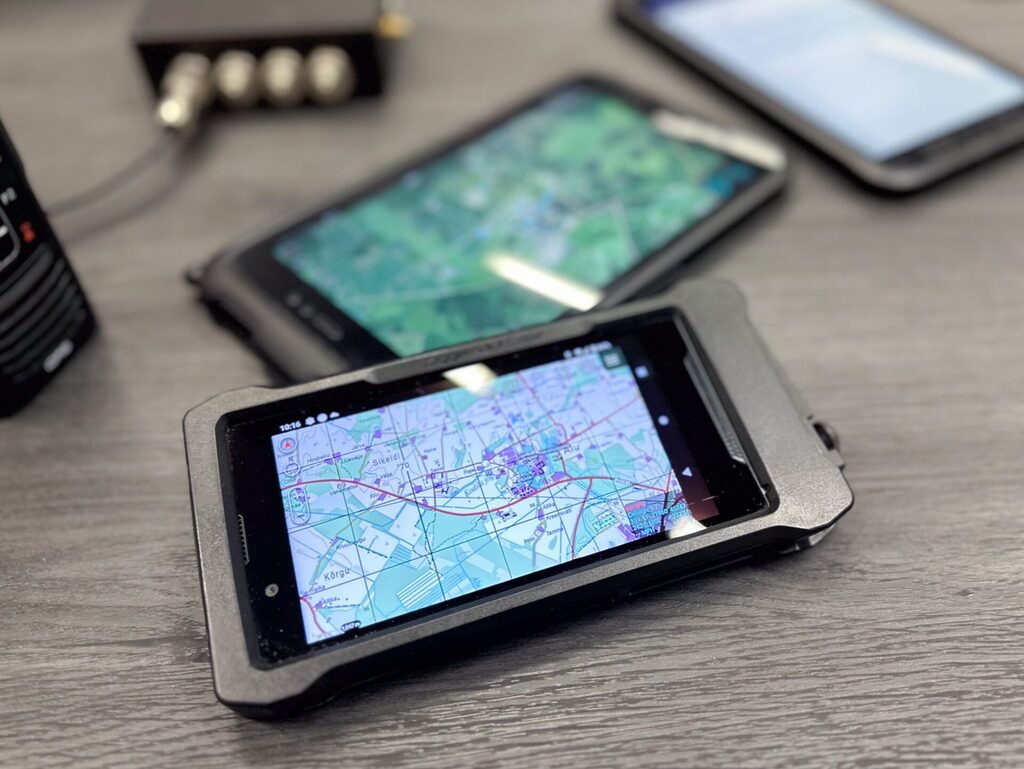
He further noted that the recent interruptions to GPS that were much talked about showed the benefit of the Wayren platform, because GPS frequencies are not the only ones that enemies might want to jam. And it is just this sort of jamming that the Wayren platform works against.
The company originally came out of the military. Härm used to work at Estonian Cyber Command, where he developed a national battle management system that was designed to digitalise the actions of the army from planning operations to carrying them out. The key point was for everything to work quickly and effectively. But when the system was put into operation during the Kevadtorm exercises, large holes appeared in the communications.
Every minute that is lost in transmitting critical information puts somebody’s life in danger. Our job is to make that time loss as small as possible.
“While the communications at the command post were more or less normal, the units on the battlefield had difficulties with communicating, and so the system was interrupted and it took a long time to exchange information”, said Härm to explain what inspired the creation of the Wayren technology. “This puts the lives of soldiers in danger, because they cannot report the results of shelling for example, or evacuate their wounded, and they have no picture of what is happening around them. Every minute that is lost in transmitting critical information puts somebody’s life in danger. Our job is to make that time loss as small as possible”, he explained.
First Estonia, then the whole world
Wayren actually applied to the NATO innovation accelerator for the second time this year, and it is obvious how much they benefited from the intervening time. Härm believes that an important reason they were chosen this time was that their technology had reached a better level of readiness. “We have done a lot of work with our clients and understood where the pinch points are”, he explained, noting that the company plans to run pilot projects with companies like Enefit and Viru Keemia Grupp alongside its work with the army.
Härm pointed out that the defence priorities currently dominate greatly within the company because that is where the original need for Wayren came from, as did its founder, but the company could have a civilian focus as well as a military one in future, whether that is balanced equally or even a little more in favour of the civilian side.
The fit with the NATO DIANA accelerator was very good because the aim of the programme is to find and accelerate the development across the alliance of innovative technologies that can be used both in everyday life in the civilian world, and also in national defence. “It is clear in the defence industry that technology with both civilian and military application is much better and more cost-effective than technology that only has military use. Purely military technology tends to be extremely complicated solutions that are too specific in their application and produced in small amounts, and that can be too expensive at the end of the day to have much of an impact”, said Härm. “Our ambition is to develop highly advanced defence technology that will put our basic frame in place from which we can start to expand”.
Härm thinks a realistic time frame for expansion is five to seven years. He says that the NATO DIANA accelerator will be extremely helpful for them. “A key point for us is the testing infrastructure that DIANA has, as there are testing centres where we can try out our ideas. The programme also gives access to a lot of resources like experts, networks and infrastructure. If we had to do everything ourselves but with limited resources, it would take a whole two years rather than just six months”, he explained, showing why the accelerator can give additional fuel for companies wanting to reach the stars.
He further observed that the accelerator will give them the chance to make lots of new contacts with end users. They are currently only really in active conversation with the Estonian defence forces, but the company hopes that the programme will let them make contacts in other NATO countries as well. Wayren’s ambitious gaze is roaming far and wide. “Our first goal is to focus on the European market, and the USA can come after that”, said Härm.
He commented that the 100,000 euros they will receive from the accelerator is primarily planned for developing the technology. If the company is actually successful in getting through to the second round of the accelerator, where there is additional funding available of up to 300,000 euros, it plans to add a sales team to the development team.
Companies that have received the funding will start work in December not only in the programme in Estonia, but also in accelerators in Denmark, Italy, Czechia, the Netherlands, Turkey, the United Kingdom, Germany, Belgium, Greece, Canada, and two locations in the USA.
The funding to start the accelerator in Estonia comes from the Ministry of Economic Affairs and Communications with support from the Ministry of Foreign Affairs, the Ministry of Defence and the city of Tallinn. Estonian contributors to building the pan-Alliance network of testing centres are Tallinn University of Technology, the University of Tartu, Foundation CR14, the National Defence College, the Estonian Academy of Security Sciences, the Estonian Aviation Academy, and Metrosert.
GaltTec CEO describes participating in the accelerator as a life-changing experience
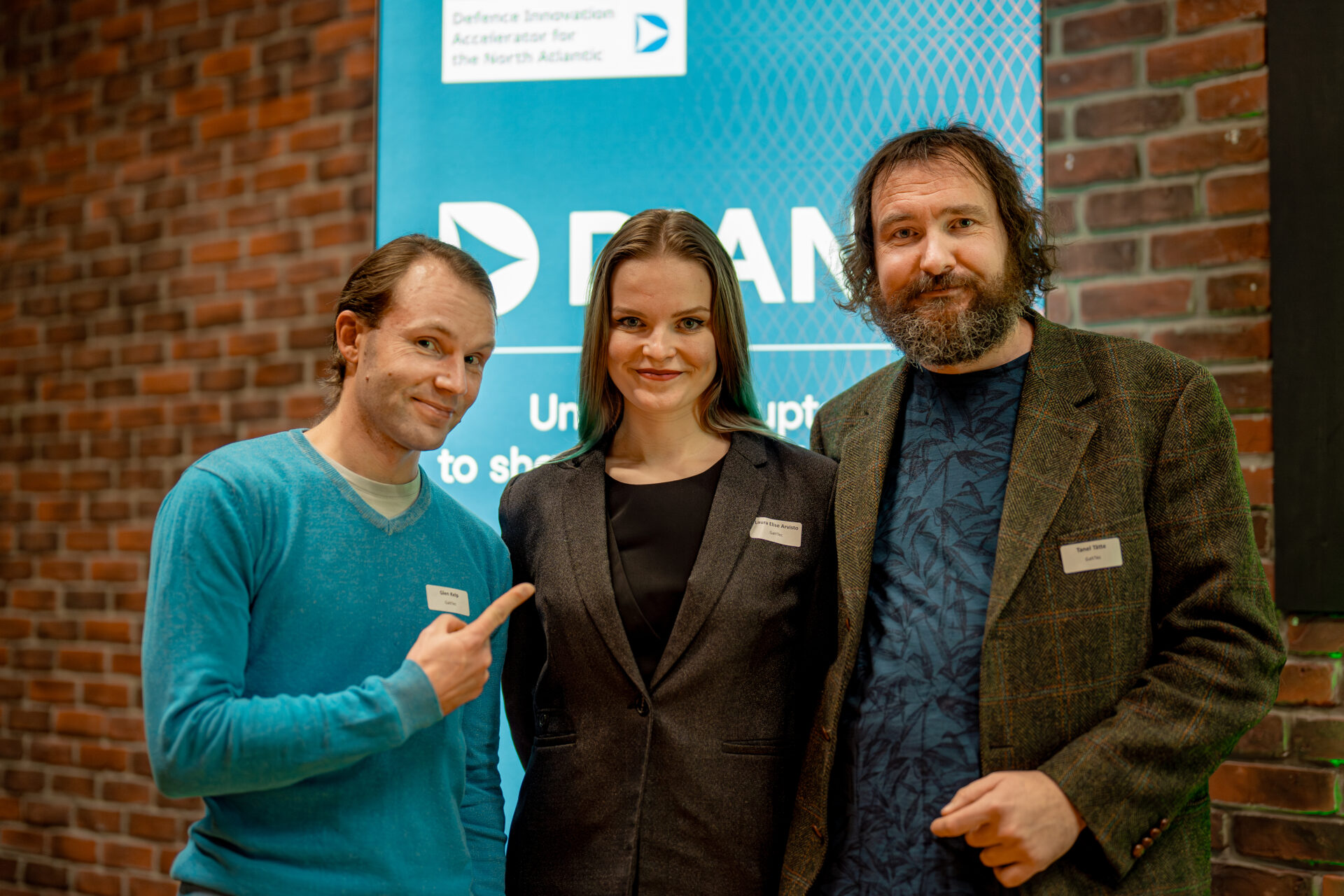
The only Estonian company accepted to the NATO DIANA innovation accelerator last year was GaltTec, which has successfully gained a further half million euros in investment on top of the original 100,000 euros in funding. “All of the opportunities that have come on top of what NATO DIANA offered are in the region of half a million euros, which is a very good start for a deep-tech company that is still in quite an early phase of development. NATO DIANA definitely played a huge role in raising our profile”, said company CEO Glen Kelp to Delfi.
Interest has been shown in GaltTec in its homeland of Estonia, but also elsewhere in Europe and in North America and Japan, and particularly in the energy sources for drones that it is making. “This is a very hot topic”, said Kelp.
The DIANA accelerator not only provided funding but also a great springboard for GaltTec to leap rapidly and confidently over the high barriers to entry that are faced in the defence industry. The company was earlier not really familiar with exactly how the industry worked, but the programme gave them a crash course in how to roll out their strategy for their dual-use technology.
Kelp believes that being in the NATO DIANA programme was simply life changing, and so he encourages all Estonian businesses starting up in the future to think about how they could also benefit from the innovation accelerator. “Anybody else wanting such a life-changing experience must absolutely take it seriously and go for it. It gave me so much more than I could ever have expected”, he said.
Source: Delfi.ee
By: Grete Põlluste, editor Jete-Ri Jõesaar
One in ten of the NATO DIANA teams will make their leaps forward in Estonia
NATO DIANA announced today the companies that will be coming to Estonia to develop their solutions in the second year of operations of their innovation accelerator. There are 13 accelerator sites operating across the countries of the Alliance this year, which is eight more than in the pilot year, and more than 2600 technological solutions applied for a place at one of them. Over 70 companies were eventually chosen, representing 20 different NATO member states, and seven of them will be starting their development path within the programme in Estonia. The NATO DIANA Estonian accelerator is led by the Tehnopol Startup Incubator working together with Sparkup Tartu Science Park.
All the companies from across the whole of the alliance that have been accepted to the accelerator are developing technologies with great potential that can find applications in everyday life in the civilian sector, as well as in the defence sector. The companies chosen this year have put forward solutions in the five areas of energy and power, data and information security, sensing and surveillance, human health and performance, and critical infrastructure and logistics. The three cross-cutting umbrella themes of these areas of technology are space, resilience and sustainability. The challenges were designed jointly by all the members of the alliance to address critical defence and security problems.
“Dual-use technologies and development of them have become increasingly important. We need to ensure the security of the state and at the same time support the development and application of products that have high value added from research and development. The NATO DIANA accelerator is a good international platform for talent where startup businesses and the research-intensive defence industry can come together, which then helps our economy grow and increases our security”, said Minister of Economy and Industry Erkki Keldo.
All the teams that have been accepted to the Estonian accelerator will receive funding of 100,000 euros from NATO DIANA, and the best can get as much as a further 300,000 euros in funding in the second phase of the programme. They will also get access to over 180 testing centres, a programme linking defence and business, and a network of mentors all across the alliance. DIANA acts as a bridge between universities, companies and the public sector in order to support the development of innovative technology that can help solve civilian and military problems and lay the path towards a sustainably secure world in the future.
“We are very pleased to see that despite the intense competition, two Estonian companies were also chosen for the NATO DIANA accelerator in this year’s round. Being chosen gives them a unique opportunity to develop their dual-use technologies and become part of the global NATO network. NATO DIANA has proven itself in its first year to be an excellent high-level programme for promoting innovation in defence. New deep-tech solutions are of critical importance for increasing defence capacity on the modern battlefield, and we are very excited to see the new and innovative solutions that will help to increase Estonia’s security and our capacity to defend ourselves”, said Ministry of Defence Hanno Pevkur.
The NATO DIANA Estonian accelerator is again being led by the Tehnopol Science and Business Park this year. The great strength of Estonia’s biggest business incubator is its deep understanding of startups and its long experience of supporting the growth of startups built around technology.
The decision by NATO DIANA to send about a tenth of the teams chosen to Estonia is a mark of recognition for the Estonian accelerator programme. “The pilot year of the accelerator produced very good results and demonstrated that the Estonian programme lays a clear foundation for companies to grow rapidly and develop. The programme this year has been tweaked even further using the experience gained during the pilot year and is designed to offer even greater value to the companies participating. That three of the companies from the accelerator here advanced to the growth phase of DIANA and each received up to an additional 300,000 euros is further recognition of the Estonian accelerator”, said Chief Executive Officer of Tehnopol Agnes Roos. She noted that the NATO DIANA accelerator in Estonia fits together with Tehnopol’s aim of supporting world-changing innovation.
The companies in the Estonian NATO DIANA accelerator will be: Scaleout from Sweden; Factiverse from Norway; Resquant, IS-Wireless, and Microamp Solutions from Poland; and Telearmy and Wayren from Estonia.
The innovative remote teledriving technology made by Telearmy and already used on the frontlines in Ukraine can be integrated with existing vehicles, allowing them to be driven remotely at long distance and at high-speed using Starlink or Radiolink.
Wayren is developing a platform to ensure uninterrupted communications in critical environments, preventing life-threatening delays in mines and on the battlefield.
The companies will start their development work in the accelerator in December. Other accelerators alongside the one in Estonia are also operating in Denmark, Italy, Czechia, the Netherlands, Turkey, the United Kingdom, Germany, Belgium, Greece, Canada, and the USA.
The accelerator in Estonia is run by the Tehnopol Startup Incubator working together with Sparkup Tartu Science Park. The funding to start the accelerator in Estonia comes from the Ministry of Economic Affairs and Communications with support from the Ministry of Foreign Affairs, the Ministry of Defence and the city of Tallinn. Estonian contributors to building the pan-Alliance network of testing centres are TalTech, the University of Tartu, Foundation CR14, the National Defence College, the Estonian Academy of Security Sciences, the Estonian Aviation Academy, and Metrosert.
Get ready for the second edition of the EUDIS Defence Hackathon: An open call for local organizers
Are you ready to drive defence innovation and showcase your region’s talent in Europe? The EUDIS Defence Hackathon is back for its second edition. We are now seeking eight passionate local organizers to host hackathon events across EU Member States and Norway. This is an excellent opportunity to contribute to innovative solutions for defence end-users, connect with top experts, and make a lasting impact on Europe’s defence and technological advancements. To learn more, join the dedicated info webinar on 12th December 11:30 CET via the following link.
The EUDIS Defence Hackathon is one of the innovation tracks of the European Union Defence Innovation Scheme (EUDIS). EUDIS, integrated into the European Defence Fund (EDF), aims to strengthen defence innovation in the European Union. Building on the first EUDIS hackathon, the excitement for the 2nd EUDIS Defence Hackathon commences. Participants will get the chance to innovate, co-operate, and compete for prestigious EU-level awards and regional prizes and awards. Furthermore, they will push the boundaries of defence innovation and make a lasting impact on Europe’s defence, security, and technological advancements. The EUDIS Defence Hackathon Programme is looking for top-notch public or private entities in EU Member States and Norway, willing to contribute proactively to EU Defence by organising a local hackathon.
The main theme of the Spring edition, May 9-11, 2025, focuses on creating innovative hardware and software solutions tailored to the urgent needs of the Ukrainian battlefield and
similar operational contexts. As the conflict continues to evolve, there is a critical need for cutting-edge technologies that address the immediate challenges faced by the Ukrainian Armed Forces while offering broader applicability in defence and civilian sectors. Participants will tackle sub-challenges that range from enhancing situational awareness and tactical surveillance systems to developing cost-effective protective gear for frontline defence. The challenges are expected as follows:
- Enhanced Situational Awareness and Tactical Surveillance Systems.
- Cost-Effective Protective Gear for Frontline Defence.
- Advanced Medical Support for Frontline Care.
This is an incredible opportunity to be part of a transformative defence innovation event that shapes the future of European defence industrial ecosystem. Interested parties can set the tone to showcase their skills, connect with like-minded innovators, and contribute to groundbreaking defence solutions. We are delighted to announce the expansion of this year’s EUDIS Defence hackathon, welcoming a broader community of innovators. Aligning with this year’s challenges, in addition to participants from the EU Member states and Norway, we are now inviting citizens from Ukraine to join as participants and mentors. We look forward to embracing the diverse perspectives and talents of our newest additions.
Open Call Timeline:
Launch: 4 December Applications are open for communities across the EU and Norway to organise one of the official hackathon events. This call offers them an opportunity to engage in defence innovation and connect with experts in defence and technology.
Info session webinar: 12 December 11:30 CET Join an informational session covering everything you need to know about the EUDIS Hackathon 2025, including theme, challenges, eligibility, and what to expect. This session is a great opportunity to ask questions and receive advice on developing a strong application.
End date: 26 January 2025 23:59 CET All interested organizers should submit their completed applications by this date to be considered for the EUDIS Hackathon 2025.
Background:
The EUDIS Defence Hackathon and Mentoring Programme offers a unique platform to engage with the European defence sector, connect with peers and experts, and leverage knowledge to tackle current defence challenges. These hackathons take place simultaneously in multiple locations across Europe, featuring the same set of challenges and timeline to:
Promote skills development and attract new talents to the defence sector.
Foster connections between different communities, such as linking young researchers and innovators with defence industry experts and end-users like the Armed Forces.
Provide an environment for creating innovative defence ideas and solutions, supporting the defence needs of EU Member States, Norway and contributing to a more competitive and innovative European defence industry.
Increase awareness of EUDIS initiatives and programs.
Join us in enhancing Europe’s defence sector. For more information on how to be part of the next wave of defence innovators, visit: eudis-hackathon.eu.
The first EUDIS Defence Hackathon, themed ‘Digital in Defence,’ was held from May 31 to June 2, 2024. It brought together 6 visionary hosts from Belgium, Greece, Hungary, Italy, Lithuania, and Poland, 275 participants from 16 countries, 79 mentors and experts, and 6 winning teams. In just 48 hours, this unique initiative sparked the creation of 70 cutting-edge ideas and innovative solutions in the defence sector. The event focused on enhancing Europe’s defence capabilities in three challenge areas: Subsea Infrastructure Protection, Improving Situational Awareness, and Cybersecurity in Defence. The teams Eunify, Superlabs, and Aquahub emerged as the top 3 teams, benefiting from an expert mentor programme gaining valuable skills in the defence area, team management, intellectual property protection, and pitching their ideas to defence companies and potential investors.
Highlights of the previous EUDIS Defence Hackathon edition:

















